 Tuesday, May 31 ~ OTTAWA. Alistair MacGregor, MP (Cowichan—Malahat—Langford), introduced a bill today in the House of Commons, aimed at ensuring that governments cannot set an election period longer than 46 days in order to spend more money.
Tuesday, May 31 ~ OTTAWA. Alistair MacGregor, MP (Cowichan—Malahat—Langford), introduced a bill today in the House of Commons, aimed at ensuring that governments cannot set an election period longer than 46 days in order to spend more money.
This bill would reverse the 2014 changes to the Canada Elections Act done unilaterally by the Conservatives that made it possible to extend the length of an election and allow spending limits to rise in accordance with the writ period.
“This bill will curtail the power of rich parties effectively having the ability to buy elections. If we are to create a fair electoral system, then we must also ensure that political parties are on a level-playing field,” stated MacGregor.
“We need to prevent US-style big money politics in Canada. Marathon election campaigns where wealthy parties can essentially flood the airwaves with attack ads have no place in a fair democratic system’’, stated NDP Democratic Reform Critic Nathan Cullen.
“This past election subjected Canadians to 78 days filled with a constant barrage of TV and radio ads all as a cynical attempt to increase the amount of election spending by political parties,’’ MacGregor said in a news release today.
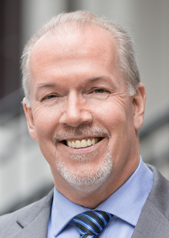 Tuesday, May 31 ~ VICTORIA. BC NDP leader John Horgan has today issued the following statement in response to the Christy Clark government’s education announcement today (that ‘administrative savings’ found in 2016-2017 budgets will be issued back to school districts):
Tuesday, May 31 ~ VICTORIA. BC NDP leader John Horgan has today issued the following statement in response to the Christy Clark government’s education announcement today (that ‘administrative savings’ found in 2016-2017 budgets will be issued back to school districts):
“This is not about Christy Clark doing what’s right for parents and kids, this is all about Christy Clark trying to make bad headlines go away until after the election.
“This is the least that Christy Clark could do. The least. This is not new funding and I think that parents and students will see through this cynical election ploy. There are no cheques going to local school boards. All that the BC Liberals are saying is that they won’t be clawing back the $25 million that they were originally demanding from schools across BC.
“Barely a month ago, Christy Clark’s education minister was dismissing the concerns of thousands of parents across BC as ‘just a few vocal groups’ and standing in the legislature defending his government’s cuts to public education.”
“I’m so disappointed that this is what it takes to get Christy Clark to listen – that parents and kids have to mount public campaigns and embarrass the BC Liberals to be heard. This funding flip-flop shows that Christy Clark’s claim that she has no control over local decisions about school closures and education cutbacks is false. Christy Clark has neglected and underfunded public education in BC for far too long, and parents and kids deserve better. What could be more important than public education?”
Local focus: See details of cutbacks in Sooke School District 62 (which serves Langford, Colwood & Sooke) in the May 13, 2016 edition (page 2) and May 27, 2016 edition (pages 1 & 2, including EDITORIAL – ‘How much strain will produce needed action’) of West Shore Voice News. For SD62, $450,041 will now not have to be ‘cut’ from staffing and administration.
Tuesday, May 31. The BC government says they are “redirecting $25 million in administrative savings from school districts back into frontline services for students,” it was announced today by the BC Ministry of Education. These are not cheques being issued, but rather a non-collection of funds that school boards were asked to find in their budgets for 2016-2017.
Education Minister Mike Bernier said: “Districts can use the funding any way they see fit – for hiring new teachers, for programs, or for maintaining schools despite falling enrolment in certain regions”. He continued: “Our government is committed to ensuring that maximum education dollars go into services for students,” Bernier said. “Districts worked hard to reduce their administrative costs and we are pleased to be able to direct that $25 million back to programs and initiatives that will directly benefit the kids of BC.”
“Districts made real efforts to reduce spending on their administration costs – and those efforts have made it possible to help flow those resources into classrooms and services for students. The amount of money being left with districts is equal to the Year 2 of Administrative savings districts were asked to find,” Bernier said.
“The BC School Trustees Association is pleased that the Ministry of Education and government have been responsive to our ongoing advocacy,” said BC School Trustees Association president Teresa Rezansoff. “We thank them for engaging in open dialogue with us regarding the funding concerns of school districts. Local autonomy to allocate the money based on local priorities is important.”
School districts have been informed that they will not have to pay their share of $25 million worth of provincial charges this year, and instead can redirect that money into frontline services for students.
“We are giving districts the ability to invest in their individual priorities,” Bernier added. “This provides a great opportunity for each district to spend the money in a way that will best meet the needs of the students of that district.”
Local focus: The Victoria school board (SD61) will receive back $$827,353; Sooke (SD62) will get $450,041; Saanich (SD63) will get $329,692; and the Gulf Islands (SD64) will receive $99,976.
See details of cutbacks in Sooke School District 62 (which serves Langford, Colwood & Sooke) in the May 13, 2016 edition (page 2) and May 27, 2016 edition (pages 1 & 2, including EDITORIAL – ‘How much strain will produce needed action’) of West Shore Voice News. For SD62, $450,041 will now not have to be ‘cut’ from staffing and administration.
 Saturday, May 28 ~ VICTORIA. Today is BC Jade Day! The BC Ministry of Energy and Mines is promoting the day to increase knowledge and promote public awareness of the history, craftsmanship, and economic benefits of the province’s gemstone.
Saturday, May 28 ~ VICTORIA. Today is BC Jade Day! The BC Ministry of Energy and Mines is promoting the day to increase knowledge and promote public awareness of the history, craftsmanship, and economic benefits of the province’s gemstone.
BC’s first active jade deposits were found in Lillooet, BC, and from 1957 until the end of the 1960s more rough jade was produced in the Lillooet area than in the rest of the world combined. Massive new deposits of jade were later found in three areas of northern BC – Dease Lake, Mount Ogden and Cassiar – which now comprise an area considered to be the global capital for nephrite jade.
Historically prized by local First Nations and an important part of Chinese culture, BC jade is prized for its toughness and is recognized as some of the best in the world.
In fact, production of BC jade has doubled in recent years, and the average price for AAA quality jade has increased from $600 to $1,000 per kilogram since 2009. About 800 to 1,200 tonnes of BC-produced jade are sold annually on the global market. Once it is made into a finished product, BC jade can sell for up to 10 times its original price.
“Although a lesser-known resource in BC’s economy, jade is a part of BC’s industrial minerals industry and helps provide important economic activity as well as cultural connection to the many communities in our province that value the gemstone for its cultural significance,” says a government news release.
BC is considered to have one of the largest deposits of nephrite jade in the world, with 50 known deposits in the province. Jade is stronger than steel and is known for its ability to be carved into intricate designs. One of the largest sculptures made of BC nephrite jade is the Jade Buddha for Universal Peace commissioned for the Great Stupa of Universal Compassion. On the industrial side, jade tiles have great market potential in new, upscale residential and commercial building applications.
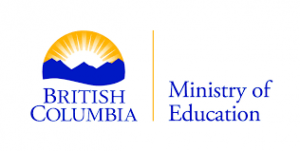 Thursday, May 26 ~ VICTORIA. Big changes are being made in the BC education system.“Connecting students with the skills they need to succeed in our changing world is the priority for British Columbia’s new curriculum,” said Education Minister Mike Bernier today in a news release. “Changes are coming to BC’s education system to boost that connection.”
Thursday, May 26 ~ VICTORIA. Big changes are being made in the BC education system.“Connecting students with the skills they need to succeed in our changing world is the priority for British Columbia’s new curriculum,” said Education Minister Mike Bernier today in a news release. “Changes are coming to BC’s education system to boost that connection.”
Designed by teachers, BC’s new curriculum will teach students the basics of reading, writing and arithmetic in a way that connects them to collaboration, communication, and critical thinking skills they will need to succeed after high school. New curriculum will be fully implemented in the K-to-9 years this fall, and will be available in draft for teachers to use for grades 10 to 12 at the same time.
 With redesigned curriculum being implemented, we need to ensure how we measure student success keeps pace. That’s why changes are starting this coming school year to our assessment practices, reporting and graduation program. Key changes include:
With redesigned curriculum being implemented, we need to ensure how we measure student success keeps pace. That’s why changes are starting this coming school year to our assessment practices, reporting and graduation program. Key changes include:
- Provincial exams: Starting 2016-2017, previous five exams being replaced with assessments of the core math and literacy skills that are the foundation for all subjects. During their graduation program years, students will write provincial exams of both math skills and literacy.
- Classroom assessment: Student progress in subjects like science, social studies, and language arts will be assessed in the classroom.
- Report cards: From late June to October, parents will be consulted on what they want to know about their child’s progress and how they want to get that information.
- Career Education: Starting in the 2017-18 school year, students will take this course to graduate. What they learn will show them the link between the classroom and their opportunities in life.
As well, post-secondary institutions in BC and outside the province have been consulted about the new curriculum – and the changes will improve the seamless path for students headed to university, college and trades training.
“As BC enters Year Two of the three-year transition to new curriculum, BC is building on some of the best student outcomes in the world to make them better,” says the BC Ministry of Education in a news release May 26. “The new curriculum fits in with the key goals of BC’s Skills for Jobs Blueprint to re-engineer education to ensure young people have the skills they need for in-demand careers.”
Parents, grandparents and guardians can check out the entire new curriculum – by grade, by subject, as well as assessment and graduation online at:https://curriculum.gov.bc.ca . Parent engagement will begin in Fall 2016, by which the BC government will accept public feedback on what they want to see changed in formal and informal reports.
“We owe it to parents and to the next generation to make sure we are setting up a clear path for kids to follow their dreams and succeed,” says Mike Bernier, BC Minister of Education. “Whether they want to design computer programs, build skyscrapers, or start a business, our new curriculum and our incredible teachers will help students build the foundation they need to make that happen.”
“Today’s announcement from the Ministry of Education is another positive step toward ensuring BC’s education system is reframed to meet the needs of students over the next 40 years, not the last 40 years,” says Teresa Rezansoff, president, BC School Trustees Association. “We are encouraged that parents, educators and school trustees will continue to have a major role in shaping the final product. Continued consultation is required to ensure there is confidence in what is recognized as one of the world’s best K-12 education systems.”
“The redesigned curriculum will support our learners today as we help them become ready for a future which will demand different skills and contributions,” says Sherry Elwood, president, BC School Superintendents Association. “We will focus on providing our students with every opportunity to find their strengths, to be creative and to master their challenges. Working together with our partners, we can provide world class future ready education for all of the students in our province!”
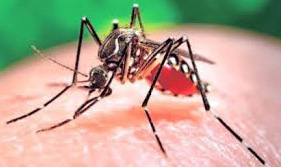 Thursday, May 26 ~ VICTORIA. A chemist at the University of Victoria (UVic) has received some new funding to help tackle the Zika virus outbreak. Two promising UVic projects to help prevent spread of the mosquito-borne Zika virus have been given the funding boost.
Thursday, May 26 ~ VICTORIA. A chemist at the University of Victoria (UVic) has received some new funding to help tackle the Zika virus outbreak. Two promising UVic projects to help prevent spread of the mosquito-borne Zika virus have been given the funding boost.
Grand Challenges Canada has awarded a total of $50,000 to UVic chemist Alexandre Brolo for his research on two applications that could alleviate this emerging public health crisis. The virus has been reported in Africa, Asia, French Polynesia and the Americas, especially countries such as Brazil where neurological, auto-immune and birth complications have been observed.
Using nanotechnology, Brolo and his team are creating low-cost strips that detect the presence of arboviruses such as Zika and dengue in saliva. The screening device involves a plastic strip coated with nanoparticles that change colour when they come into contact with infected saliva. With simple-to-use technology, these screening strips would be used by on-the-ground health workers to detect infection trends.
 “This funding will allow me to continue to optimize the stability and accuracy of these strips,” says Brolo. The grant will also help cover a small-scale pilot project in collaboration with a virologist at São Paulo University in Brazil.
“This funding will allow me to continue to optimize the stability and accuracy of these strips,” says Brolo. The grant will also help cover a small-scale pilot project in collaboration with a virologist at São Paulo University in Brazil.
The Zika virus has caught prominent worldwide attention for one of its most obvious impacts — causing microencephaly in fetuses and newborns. Further to that, it is being discovered that the virus can last up to six months in the sperm of men who have been exposed to the mosquito-borne virus, which can be passed on to women in any part of the world whose pregnancies may also result in babies with microencephaly. Microencephaly in newborns presents as a small head with a dramatically underdeveloped brain.
The mosquito that carries the Zika virus is not thought to be present in Canada, according to Health Canada.
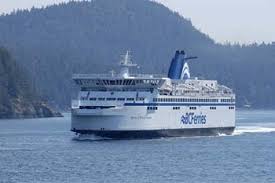 Wednesday, May 25 ~ VICTORIA. BC Ferries is maximizing the number of sailings available during busy periods for the month of June on its three busiest routes. The add-on sailings are In response to significantly increasing traffic levels, says BC Ferries.
Wednesday, May 25 ~ VICTORIA. BC Ferries is maximizing the number of sailings available during busy periods for the month of June on its three busiest routes. The add-on sailings are In response to significantly increasing traffic levels, says BC Ferries.
On the Horseshoe Bay – Langdale route, 46 additional sailings have been scheduled for June. These extra sailings are on Thursdays and Fridays, and during the last week of June. Also, starting on June 21, the sailing schedule on the Langdale route will be adjusted for the summer to allow BC Ferries to better meet the increased demand in traffic. Service between Tsawwassen and Swartz Bay has been further increased by adding 32 more sailings in June on Thursdays, Saturdays and Mondays. Eleven additional trips have also been added to the schedule on the Horseshoe Bay – Departure Bay route on Thursdays and Fridays during the month of June.
“Vehicle traffic is up by approximately 6.0% on our major routes so far this spring, and so we are adding even more extra sailings on our busiest routes to increase capacity and improve our on-time performance for our customers,” said Corrine Storey, BC Ferries’ Vice President of Customer Services. “Full summer schedules will go into effect at the end of June, where even more sailings will be added for the peak season.” www.bcferries.com
 Wednesday, May 25 ~ WEST SHORE. About 30 parents and educational stakeholder reps showed up to the Sooke School District (SD62) board meeting last night for the SD62 May 24 public board meeting, expressing frustration about school board expenditure cuts.
Wednesday, May 25 ~ WEST SHORE. About 30 parents and educational stakeholder reps showed up to the Sooke School District (SD62) board meeting last night for the SD62 May 24 public board meeting, expressing frustration about school board expenditure cuts.
With details from SD62 Superintendent Jim Cambridge and SD62 Treasurer Harold Cull, the board explained to parents and reps of CUPE and teachers that in having to produce a balanced budget to $110,036,802 there needed to be cuts. Their deficit calculation was almost $1.7 million. That is due, they said, to inadequate revenues. Most of the revenues of the school district come from the BC Government by way of per-pupil funding formula (presently about $7,160 per full-time student). Other revenues are achieved through facility rental, International student programs, and bussing fees.
The 2016-2017 operating budget is $94,775,109 which is up 6% from the 2015-2016 operating budget of $89,334,524. Of the operating budget, $75.7 million or about 85% is spent on instruction, with $8.5 million (9%) on facilities, $3.1 million (4%) on administration, and $2.1 million (2%) on transportation.
In 2016-2017, SD62 will provide educational delivery for a projected 9,804 students (perhaps reaching 10,000, according to Cambridge last night). That’s up from 9,515 students in 2015-2016. SD62 serves students and families primarily in the areas of Langford, Colwood and Sooke (and also Highlands, Metchosin and Port Renfrew). More school space is needed, but for now portables will be relocated around the school district as required to accommodate the influx of more students this fall.
This year’s cuts of about $918,000 are seen almost entirely in staffing — administrative, support, and instructional. This is largely in response to the BC Ministry of Education’s directive to find ‘savings’ in administrative budget areas. Parents present at the board meeting last night were primarily concerned about cuts to programs that require specialized teachers who deliver support to students who require more one-on-one attention outside the larger classroom framework.
Superintendent Cambridge did point out that 12 new classroom teachers are being hire for 2016-2017 to help with expansion of the student numbers in SD62. But non-enrolling support staff numbers are being cut back. “When something right happens (as in increased funding from the government), we can add back in the educational assistants and classroom support mid-year,” said Cambridge. “If money comes in we have a place to spend it right way. We know where our cuts are.” Cambridge said that a per-pupil funding formula is inadequate in particular for school districts with expanding student populations, such as Sooke.
The board passed a motion to send a letter to the BC Ministry of Education to outline the hardship on students and the learning environment by having to balance a budget that the see as inadequate on the revenue side. Notably, having to pay BC Hydro increases, MSP increases and a portion of the province-wide Internet network expansion were considered as onerous to the school district. The teacher’s union and CUPE, the SPEAC parents organization, and other stakeholders will be invited to sign the letter.
Board Chair Bob Phillips and Trustee Ravi Parmar were particularly vocal at the board table about the downloading of costs such as BC Hydro increases and MSP premium increases onto the local school board budget. While all board members seemed to favour the $50 per rider bus fee increase for 2016-2017, Trustee Wendy Hobbs made it clear she felt that there were too many waivers for families who claim they cannot pay, and asked for more accountability in that regard.
The board passed increases in fees for the Academies programs including rugby and lacrosse.
Some new course offerings in SD62 will now include Entertainment (11), Entrepreneurship (11), Lifesaving (10, 11 and 12), Outdoor Education (11 and 12), and Multi-Sport (10, 11 and 12).
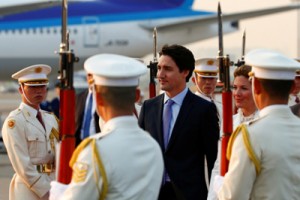 Tuesday, May 24 ~ TOKYO. The Government of Canada says it has committed to deepen and renew its social and economic engagement with Asia, in order to better pursue Canada’s interests and values. Today, the Prime Minister, Justin Trudeau, concluded his official working visit in Japan, which included an audience with the Emperor and Empress of Japan, and a meeting with Prime Minister Shinzo Abe.
Tuesday, May 24 ~ TOKYO. The Government of Canada says it has committed to deepen and renew its social and economic engagement with Asia, in order to better pursue Canada’s interests and values. Today, the Prime Minister, Justin Trudeau, concluded his official working visit in Japan, which included an audience with the Emperor and Empress of Japan, and a meeting with Prime Minister Shinzo Abe.
While in Tokyo, the Prime Minister met with representatives of the automotive sector to underline that Canada is a great place to invest. He also took the opportunity to discuss trade opportunities, promote Canadian quality, and highlight Canada’s research and development capacity and innovation expertise. The automotive sector represents tremendous opportunities to create jobs, strengthen the middle class, and grow both countries’ economies.
During the meeting with Prime Minister Abe, the two leaders discussed a wide range of issues important to Canada and Japan, including the implementation of the Paris Agreement on climate change, global health initiatives, infrastructure for sustainable growth, and collaboration on Arctic science. Finally, they discussed the revitalization of the Canada-Japan Joint Economic Committee, an important forum to improve economic ties between Canada and Japan.
“Improving trade relations with Japan is a top priority of our government. The growing collaboration between Canada and Japan – on innovation and science – will contribute directly to our economic growth, and will benefit all Canadians.”
 Monday, May 23. Today, Premier Christy Clark begins a trade mission focused on opening new doors in the Philippines and developing new export markets in technology and liquefied natural gas (LNG) with established trade partners in Japan and South Korea.
Monday, May 23. Today, Premier Christy Clark begins a trade mission focused on opening new doors in the Philippines and developing new export markets in technology and liquefied natural gas (LNG) with established trade partners in Japan and South Korea.
Premier Clark is leading a delegation of representatives from approximately 78 businesses and organizations on her seventh trade mission to Asia, travelling to South Korea May 23-25, the Philippines May 26-27, and Japan May 28-31.
“This trade mission is about developing new trade and investment opportunities with Japan and Korea, while looking at what the future holds in Southeast Asia as we develop a stronger trade presence in the Philippines,” said Premier Clark. “BC is leading Canada right now because we have both a diverse economy and diverse export markets. This mission is an opportunity to build on that success.”
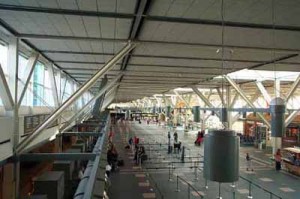 Monday, May 23 ~ VICTORIA. The first part of 2016 brings more good news for BC tourism, says the BC Ministry of Jobs,Tourism and Skills Training and Responsible for Labour. The latest international visitor numbers show that tourism visitation is up 16.8% during the first three months of 2016 with 121,306 more visitors to the province over the same period last year.
Monday, May 23 ~ VICTORIA. The first part of 2016 brings more good news for BC tourism, says the BC Ministry of Jobs,Tourism and Skills Training and Responsible for Labour. The latest international visitor numbers show that tourism visitation is up 16.8% during the first three months of 2016 with 121,306 more visitors to the province over the same period last year.
The number of international visitors in March is up 19.6% over March 2015, representing an additional 50,299 visitors to British Columbia. Visitors from the first three months are coming from a number of key markets, with increases as follows: France up 51.6%; Mexico 45.2%; U.S. 20.1%; Japan 13.3%; South Korea 10.1%; China 7.8%; Germany 6.2%; Australia 4.7%; India 2.5%; United Kingdom 1.1%.
Provincial tourism growth is helped by a number of factors including the low Canadian dollar, Destination BC’s new international marketing strategy, more direct flights to BC and outstanding conditions at the province’s ski resorts. The new flights are thanks in part to a 2012 jet fuel tax eliminated by government to reduce costs for airlines and give travelers more choice.
The strong growth in visitors from Mexico is partly due to a new non-stop, daily Aeromexico flight between Mexico City and Vancouver that started in December 2015. Continued growth from Japan is helped by the new Air Canada seasonal flight to Osaka’s Kansai International Airport.
Each new daily international flight to BC creates between 150 and 200 new jobs at Vancouver International Airport (YVR – in photo). An additional 300 to 400 jobs are created indirectly in the province at businesses such as hotels, restaurants, travel agents and tour operators.
The tourism industry is helping fuel the provincial economy which is expected to lead the country in economic growth in 2016 and 2017. Tourism supports approximately 19,200 businesses and 127,500 employees in BC, and is a key sector in the BC Jobs Plan.
“Tourism growth for the first part of 2016 is very strong and encouraging as we get ready for a busy summer tourism season,” says Shirley Bond, Minister of Jobs, Tourism and Skills Training and Minister Responsible for Labour. “International tourists are putting BC at the top of their travel lists and our amazing scenery and world-class tourism experiences are drawing people from around the world. We also are encouraging British Columbians to #ExploreBC this summer. Tourism has been a key part of our Jobs Plan and is a critical sector in our diverse and growing economy.”
“Tourism in British Columbia is going from strength to strength,” says Marsha Walden, CEO Destination British Columbia. “We are coming off one of the best ski seasons in years, hotel occupancy rates and room revenues are on the rise, provincial restaurant receipts are up, and tourism businesses are reporting stronger bookings as we head into summer. By all accounts, 2016 is off to a fantastic start. ”
Tourism provides a job for roughly one out of every 15 people employed in BC. The province invests more than $90 million annually in the tourism sector across every region to grow and market the sector. In 2015, 4.9 million international visitors came to BC – a 7.9% increase compared to 2014.
 Sunday, May 22 ~ OTTAWA. The Government of Canada says its “ambitious plan to revitalize our economy through smart, necessary investments for long-term economic growth and a strong middle class is gaining recognition among the world’s most advanced economies”.
Sunday, May 22 ~ OTTAWA. The Government of Canada says its “ambitious plan to revitalize our economy through smart, necessary investments for long-term economic growth and a strong middle class is gaining recognition among the world’s most advanced economies”.
On May 21, Finance Minister Bill Morneau concluded his meeting with the G7 Finance Ministers in Sendai, Japan. In a news release it was stated: “He shared Canada’s plan to create better jobs, promote a cleaner environment and build more liveable communities through investments in people and the economy. Canada’s people-centered approach will flourish through cooperation with international partners and lead to stronger global growth, greater equality and shared prosperity.”
“Canada’s economic approach is based on the notion that, when you have an economy that works for the middle class, you have a country that works for everyone.”
Morneau said in a release yesterday: “…the investments contained in Budget 2016 and the longer-term growth strategy we are developing are exactly what Canadian families—and the global economy—need now, and for the future.”
Canada’s relationship with the Asia-Pacific region, and the opportunities to further build on a two-way trade relationship now, are worth close to $170 billion per year, says the Finance Ministry. “Creating new markets for Canadian-made goods, providing more selection to consumers and demonstrating leadership on the international stage will better position Canada for the global economy of tomorrow, and provide more opportunities for Canadian families now and in the future.”
Today at noon, Ottawa time, Prime Minister Justin Trudeau and Mrs. Grégoire Trudeau will depart for Tokyo, Japan where Trudeau will represent Canada at the G-7 Summit.
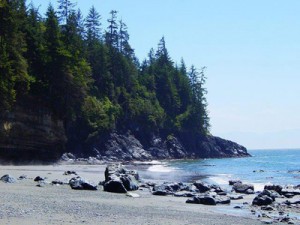 Saturday, May 21 ~ VANCOUVER ISLAND. Access to the parking lot at Sombrio Beach has been temporarily restricted for safety measures over the May long weekendto discourage illegal activities, such as parties and vandalism, which have occurred in past years.
Saturday, May 21 ~ VANCOUVER ISLAND. Access to the parking lot at Sombrio Beach has been temporarily restricted for safety measures over the May long weekendto discourage illegal activities, such as parties and vandalism, which have occurred in past years.
The 2.5 km gravel access road leading from Highway 14 to the parking lot at Sombrio Beach trailhead will be closed to vehicle access from Friday, May 20 at 7 a.m. to Monday, May 23 at 12 midnight.
BC Parks will be closing vehicle access to Sombrio Beach with the support of the Conservation Officer Service and the RCMP. Unauthorized activities within the park can impact the social, economic, cultural and ecological sustainability of both the park and the local communities.
All locations within Juan de Fuca Park, including the designated campsites and access trail at Sombrio Beach and the Juan de Fuca Marine Trail, remain open to the public. The three remaining trailheads to the Juan de Fuca at China Beach, Parkinson Creek and Botanical Beach are still accessible by vehicles.
BC Parks wants all visitors to peacefully and safely enjoy recreational activities at the park such as hiking, camping and day use at Sombrio Beach and in the Juan de Fuca Provincial Park.
 Friday, May 20 – VICTORIA. With heavy traffic expected over the upcoming Victoria Day long weekend, BC Ferries has added over 70 extra sailings to its busiest routes. Extra service has been made available for Thursday, May 19 through Tuesday, May 24.
Friday, May 20 – VICTORIA. With heavy traffic expected over the upcoming Victoria Day long weekend, BC Ferries has added over 70 extra sailings to its busiest routes. Extra service has been made available for Thursday, May 19 through Tuesday, May 24.
Additional sailings are scheduled for the Tsawwassen – Swartz Bay, Horseshoe Bay – Departure Bay, and the Horseshoe Bay – Langdale routes for the upcoming long weekend.
• 46 extra sailings scheduled on the Tsawwassen (Vancouver) – Swartz Bay (Victoria) route
• 15 extra sailings scheduled on the Horseshoe Bay – Departure Bay route
• 10 extra sailings scheduled on the Horseshoe Bay – Langdale route
“Thursday is the new Friday for travel on BC Ferries,” said Janet Carson, BC Ferries’ Vice President of Marketing and Travel Services. “Many families get a jump on the long weekend and travel Thursday afternoon. Friday afternoon through late morning on Saturday are also popular travel times on a long weekend with the majority of traffic moving from Metro Vancouver to Vancouver Island and from Horseshoe Bay to the Sunshine Coast.”
Historically, the holiday Monday afternoon is the busiest day of the long weekend with traffic returning to Metro Vancouver. Several routes have seasonal schedule changes that come into effect on the Victoria Day long weekend and BC Ferries encourages customers to consider making a reservation during busy periods if travel is required on a specific sailing. For full schedules, current conditions, or to make a reservation, please visit www.bcferries.com .
Thursday, May 19 – VICTORIA. BC will invest $45 million in school facility upgrades this year. “We’re calling it our ‘fix it fund’,: said BC Education Mike Bernier in an announcement at the BC Legislature today. There will be 80 projects in 124 schools throughout the province.
“We have a strong economy in BC, and have the opportunity of making investments like this,” Bernier said. The work will include 21 roof replacements; the upgrading of heating and ventilation systems; windows, lighting and electrical system upgrades; and fire protection safety enhancements.
 Districts applied to the Ministry of Education in spring 2016 and successful projects were chosen based on need, priority and supporting student learning. Another requirement was that projects had to cost more than $100,000.
Districts applied to the Ministry of Education in spring 2016 and successful projects were chosen based on need, priority and supporting student learning. Another requirement was that projects had to cost more than $100,000.
“We’re making sure our schools last well into the future. We’re realizing our commitments to work with school districts — over 1,600 schools in BC,” Bernier said. The schools are where “students go every day during the school year for our amazing education that we have here.”
Joining Minister Bernier for the announcement was Greater Victoria School Board (SD61) Superintendent Piet Langstraat. “Today’s announcement is about investing in buildings,” said Langstraat. “But it’s much more than that. It’s about investing in safety. And more than that … about investing in the lives of these young students. Not only for today, for for the years to come.”
Also speaking today was SD62 Board Chair Bob Phillips, a long-time trustee in Sooke School District 62 (SD62). Phillips announced that the only high school out in the town area of Sooke — Edward Milne Community School (EMCS) — will be getting almost $465,000 for roof repair and envelope upgrade.
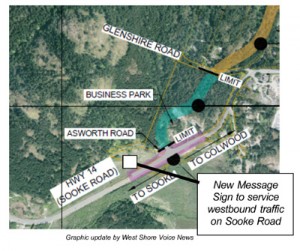 Wednesday, May 18 [UPDATED May 19] ~ VICTORIA: A new digital sign will provide drivers travelling west on Highway 14 with up-to-date information on road conditions, lane closures and commuting delays, it was announced today by BC Transportation and Infrastructure (MOTI) Minister Todd Stone. MOTI will also begin a study to identify future priorities for Highway 14 improvements.
Wednesday, May 18 [UPDATED May 19] ~ VICTORIA: A new digital sign will provide drivers travelling west on Highway 14 with up-to-date information on road conditions, lane closures and commuting delays, it was announced today by BC Transportation and Infrastructure (MOTI) Minister Todd Stone. MOTI will also begin a study to identify future priorities for Highway 14 improvements.
“The Highway 14 corridor is a critical link on southern Vancouver Island that serves a wide variety of people including commuters, commercial drivers, tourists and cyclists,” said Stone. “In response to discussions with local community leaders, we will be looking at ways to improve this route and the new overhead sign is an important first step.”
The overhead changeable message sign will be located near Awsworth Road, approximately 500 metres west of the future connection to the new West Shore Parkway extension on Highway 14, and will face drivers heading westbound toward Sooke.
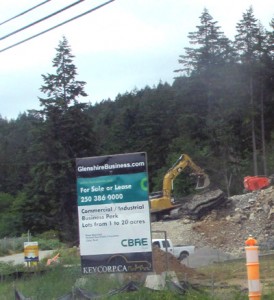 Work is already underway on the nearby Glenshire Business Park, a project by Keycorp Developments of Langford. Easily visible as one travels on Sooke Road, the commercial/industrial park will offer lots from 1 to 20 acres in size.
Work is already underway on the nearby Glenshire Business Park, a project by Keycorp Developments of Langford. Easily visible as one travels on Sooke Road, the commercial/industrial park will offer lots from 1 to 20 acres in size.
Work on the roadside changeable message sign will begin in late May 2016, and is expected to be finished during the summer. The sign will cost approximately $250,000, and will provide timely information regarding delays, road closures and current road conditions to the approximately 7,000 vehicles travelling from Langford to Sooke each day. Information will be provided from the DriveBC traveller information system, which is also available online at: www.DriveBC.ca
Work will begin in late May 2016, and is expected to be finished during the summer. The sign will cost approximately $250,000, and will provide timely information regarding delays, road closures and current road conditions to the approximately 7,000 vehicles travelling from Langford to Sooke each day. Information will be provided from the DriveBC traveller information system, which is also available online at: www.DriveBC.ca
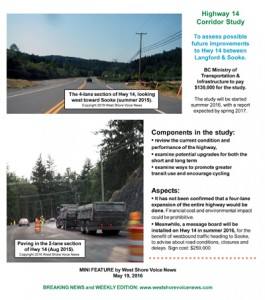 CHM2M Hill has been awarded the $130,000 contract to assess possible future improvements to Highway 14 between Langford and Sooke. This technical study will review the current condition and performance of the highway, examine potential upgrades for both the short and long term, and examine ways to promote greater transit use and to encourage cycling.
CHM2M Hill has been awarded the $130,000 contract to assess possible future improvements to Highway 14 between Langford and Sooke. This technical study will review the current condition and performance of the highway, examine potential upgrades for both the short and long term, and examine ways to promote greater transit use and to encourage cycling.
The idea of widening Highway 14 to four lanes all the between between Langford and Sooke has not yet been confirmed, despite speculation in other media. But Langford Mayor Stew Young says that if in fact Highway 14 were to be widened to four lanes, that it would improve traffic flow between Langford and Sooke.
The study will begin during the summer of 2016 and the final report is expected to be available in the spring of 2017, says MOTI.
“The Mayor has been writing letters to Minister Stone every time there has been an accident on Highway 14,” says District of Sooke CAO Teresa Sullivan. “Mayor Tait and I met with MOTI officials last month who informed us they were considering the sign and would be conducting the improvement study this year. Mayor and Council are thrilled this work is moving ahead and look forward to receiving the results of the study in 2017.”
 Tuesday, May 17. Today, Randall Garrison, NDP LGBTQ critic and MP for Esquimalt-Saanich-Sooke, welcomed the Liberal government’s introduction of a bill to add protections based on gender identity and gender expression to the Canadian Human Rights Act and the Criminal Code. The text of government’s legislation is identical to bills put forward in the past by the NDP.
Tuesday, May 17. Today, Randall Garrison, NDP LGBTQ critic and MP for Esquimalt-Saanich-Sooke, welcomed the Liberal government’s introduction of a bill to add protections based on gender identity and gender expression to the Canadian Human Rights Act and the Criminal Code. The text of government’s legislation is identical to bills put forward in the past by the NDP.
“Today is a good day for the Trans community. Trans and gender non-binary people deserve equal rights and protections and have been waiting for far too long. This is an important step in ensuring equal rights for all Canadians,” said Garrison in a release to media.
Today marks the seventh time in the past 10 years that this legislation has been introduced. New Democrats have a long history of bringing forward legislation to guarantee trans rights. Former NDP MP, Bill Siksay, introduced similar legislation in three previous parliaments starting in 2005 and MP Garrison in 2011 and again in 2015. The bills passed the House of Commons twice, in 2011 and 2013, only to be killed by delay and inaction in the Senate.
“I am hoping the government will now adopt an expedited process for the bill given recent events, including the May 2 arson attack on the only clinic in Canada that performs gender affirming surgery in Montreal,” added Garrison.
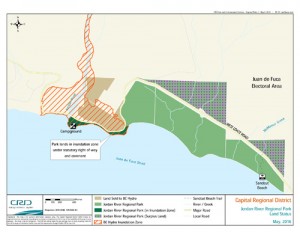 Friday, May 13 ~ VICTORIA. BC Hydro is buying lands in the Jordan River area, at a price tag of $3.13 million.
Friday, May 13 ~ VICTORIA. BC Hydro is buying lands in the Jordan River area, at a price tag of $3.13 million.
The Capital Regional District (CRD) Board accepted the offer from BC Hydro to acquire lands and rights on lands affected by a potential flood inundation area at Jordan River. CRD is retaining the oceanfront lands within the inundation zone and south of the West Coast Road, including the campground and beach used by surfers. [See map: BC Hydro inundation zone show with red hash marks at waterfront]
A covenant will be placed on these waterfront lands to restrict residential development, but camping will continue to be permitted. [See map: camping shown in dark green area at waterfront.]
BC Hydro also has contributed funds for an early warning alarm system and will help cover the costs of transferring the land. BC Hydro will also give local First Nations the opportunity to acquire these lands.
“The acquisition of these lands and rights helps to address public safety concerns in a region where the seismic risk is much greater than previously understood,” said Chris O’Riley, Deputy CEO, BC Hydro.
“This is seen as a prudent sale that benefits the residents of the region. Retaining the oceanfront lands allows the CRD to continue to provide overnight camping and ensures easy access to the water for beach users and surfers,” said CRD Board Chair Barbara Desjardins. “The funds from the land sale will go to the CRD Regional Parks Service.”
The CRD initially agreed to purchase 180 hectares of land in Jordan River to create a regional park in 2010. The park boundary has not yet been finalized due to the planned disposition of surplus lands. However, this transaction is consistent with the vision for the Regional Park and ensures the primary public interests will be held for future generations to enjoy.
“This has been a long process but at the end of the day, in my view, BC Hydro has fairly compensated the CRD for these lands and rights, “ said Mike Hicks, Juan de Fuca Regional Director and CRD Park’s Chair. “A special thank you to Minister Bill Bennett, MLA John Horgan and BC Hydro President Jessica McDonald for their assistance.”
Thursday, May 12 ~ OTTAWA. Prime Minister Justin Trudeau will meet with first responders in Fort McMurray on Friday morning, May 13. He will also speak to media, along with Alberta Premier Rachel Notley.
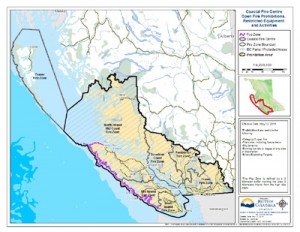 Wednesday, May 11 ~ PARKSVILLE. The BC Ministry of Forests, Lands and Natural Resource Operations says that effective at noon today Friday, May 13, that Category 2 open fires will be prohibited in most areas of the Coastal Fire Centre.
Wednesday, May 11 ~ PARKSVILLE. The BC Ministry of Forests, Lands and Natural Resource Operations says that effective at noon today Friday, May 13, that Category 2 open fires will be prohibited in most areas of the Coastal Fire Centre.
This is to help prevent human-caused wildfires and protect public safety. The prohibition remains in effect until Oct. 21, 2016 or until the public is otherwise notified.
The prohibition covers all BC Parks, Crown lands and private lands within the Coastal Fire Centre’s jurisdiction, with the exception of the area known as the “Fog Zone” and the Haida Gwaii Forest District.
- The Coastal Fire Centre covers all of the area west of the height of land on the Coast Mountain Range from the US-Canada border at Manning Park, including Tweedsmuir South Provincial Park in the north, the Sunshine Coast, the Lower Mainland, Vancouver Island, the Gulf Islands and Haida Gwaii [see map].
- The Fog Zone is a strip of land along the outer coast of Vancouver Island, stretching from Owen Point (near Port Renfrew) north to the tip of Vancouver Island and around to the boundary of the District of Port Hardy. This strip extends inland 2km from the high tide point. A map of the Fog Zone is available online.
Specifically, this prohibition applies to:
- The burning of any material (piled or unpiled) smaller than 2m high and 3m wide.
- The burning of stubble or grass fires over an area less than 2,000 sq m.
- The use of fireworks, firecrackers, sky lanterns, or burning barrels or burning cages of any size or description. The use of binary exploding targets (e.g., for rifle target practice).
This prohibition does not apply within the boundaries of a local government that has wildfire prevention bylaws in place and is serviced by a fire department. Before lighting any fire, residents should check with local authorities to see if there are any other fire restrictions in effect. However, recently on south Vancouver Island, open burning has been banned this season by Metchosin, Otter Point and Sooke. A ban by bylaw was already in effect in Langford.
This prohibition does not ban campfires that are a half-metre high by a half-metre wide or smaller, or apply to cooking stoves that use gas, propane or briquettes. People lighting a campfire must maintain a fireguard by removing flammable debris from the campfire area, and they must have a hand tool or at least eight litres of water available nearby to properly extinguish the fire. Campfires must be fully extinguished when not attended.
Any person lighting larger fires (or more than two fires of any size) must comply with open burning regulations and must first obtain a burn registration number by calling 1 888 797-1717.
Anyone who lights, fuels or uses an open fire when a fire prohibition is in place or fails to comply with an open fire prohibition may be issued a ticket for $1,150 or, if convicted in court, be fined up to $100,000 and/or sentenced to one year in jail. If the contravention causes or contributes to a wildfire, the person responsible may be subject to a penalty of up to $100,000 and ordered to pay all firefighting and associated costs.
To report a wildfire, unattended campfire or open burning violation, call 1-800-663-5555 toll-free, or *5555 on a cellphone.
For the latest information on current wildfire activity, burning restrictions, road closures and air quality advisories, go to: www.bcwildfire.ca | Wildifre updates on Twitter | Wildfire updates on Facebook
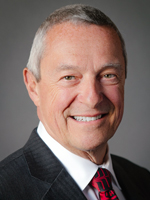 Wednesday, May 11 ~ VICTORIA. The BC Government has agreed to help the Capital Regional District (CRD) of Greater Victoria to facilitate a path forward and develop a plan to move Core Area Liquid Waste Management Plan (CALWMP) forward, toward meeting the 2020 deadline.
Wednesday, May 11 ~ VICTORIA. The BC Government has agreed to help the Capital Regional District (CRD) of Greater Victoria to facilitate a path forward and develop a plan to move Core Area Liquid Waste Management Plan (CALWMP) forward, toward meeting the 2020 deadline.
BC Minister of Community, Sport and Cultural Development, Peter Fassbender, will speak in camera today at the Capital Regional District (CRD) Board meeting. After the meeting, CRD Board Chair, Barbara Desjardins, will speak to the media regarding Minister Fassbender’s remarks.
The Core Area Liquid Waste Management Plan (CALWMP) is a 25-year plan under the Environmental Management Act that outlines the Capital Regional District’s (CRD) wastewater management strategies, including wastewater treatment for the municipalities of Colwood, Esquimalt, Langford, Oak Bay, Saanich, Victoria and View Royal, as well as the Esquimalt and Songhees Nations. That area serves a population of about 300,000 people. Sooke and the Saanich peninsula already have sewage and wastewater treatment in place.
The current plan, Amendment No. 10 of the Core Area Liquid Waste Management Plan, was developed under the direction of the Core Area Liquid Waste Management Committee and the CRD Board, with input from experts and the public, and was approved by the BC Minister of Environment in March 2016.
“CRD, with support from the Province of BC, is committed to delivering an innovative project that provides benefit to the environment, responds to our changing climate, and adds value to the residents and businesses of our communities and those visiting our region,” says CRD Communications senior manager Andy Orr.
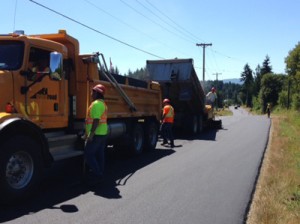 Wednesday, May 11 ~ VICTORIA. Mainroad South Island Contracting LP will be paving a section of the Trans-Canada Highway (Hwy 1) in the Goldstream Park area during Wednesday May 11 through Friday May 13.
Wednesday, May 11 ~ VICTORIA. Mainroad South Island Contracting LP will be paving a section of the Trans-Canada Highway (Hwy 1) in the Goldstream Park area during Wednesday May 11 through Friday May 13.
The work will be done between 7 pm and 5 am. All lanes in both directions will be affected.
“Please expect delays and follow directions from the traffic controllers.” says Mainroad. Their 24 Hour Emergency Line is: 1-877-391-7310
 Wednesday, May 11 ~ NATIONAL. The Canadian Federation of Independent Business (CFIB) is calling on the federal government to reinstate their promised small business tax cut after a Parliamentary Budget Office (PBO) report found that freezing the rate will cost the economy $300 million per year, and will cost small business a whole lot more.
Wednesday, May 11 ~ NATIONAL. The Canadian Federation of Independent Business (CFIB) is calling on the federal government to reinstate their promised small business tax cut after a Parliamentary Budget Office (PBO) report found that freezing the rate will cost the economy $300 million per year, and will cost small business a whole lot more.
“The reason the small business tax rate exists is to allow small firms to reinvest their earnings back into their businesses,” said Dan Kelly, CFIB president. “Freezing the rate handcuffs middle class entrepreneurs’ ability to grow the Canadian economy. While the PBO report is a good first step in demonstrating the tax freeze fallout, we believe the long-term impact on employment will be even more significant because small firms are so much more labour intensive than larger ones.”
The PBO report also found that the freeze will cumulatively cost small businesses more than $2 billion over the next five years and the effects will carry on beyond the report dates.
“The report gets at what small business owners have been telling the federal government since they broke their promise to cut the tax: freezing the small business tax rate will make it more difficult for small business to invest, limit job growth and hurt the Canadian economy,” added Kelly. “The government is taking money from the businesses that need it most.”
Kelly will appear before the finance committee on Thursday to raise this issue.
 Tuesday, May 10 ~ VICTORIA. Due to a fuel spill in Esquimalt Harbour on Sunday, May 8, the public is being asked to avoid the water and shoreline in the Plumper Bay area. It’s believed the spill is primarily contained and/or evaporated, but some fuel may have moved into other areas of Esquimalt Harbour, says Island Health.
Tuesday, May 10 ~ VICTORIA. Due to a fuel spill in Esquimalt Harbour on Sunday, May 8, the public is being asked to avoid the water and shoreline in the Plumper Bay area. It’s believed the spill is primarily contained and/or evaporated, but some fuel may have moved into other areas of Esquimalt Harbour, says Island Health.
As a result, public health officials recommend that people and pets avoid contact with water and shoreline that appear to be contaminated, or smell of diesel. If contact inadvertently occurs, affected skin should be thoroughly washed.
Due to the spill, Fisheries and Oceans Canada is also prohibiting harvest of all fish species in Esquimalt Harbour. The closure order was recommended by Island Health and the First Nations Health Authority, and prohibits harvesting of fish in waters possibly affected by the spill.
The closure is a precautionary measure and will be reviewed when lab results show whether or not the fuel spill is affecting these fish.
There is an ongoing closure for the harvesting of bivalve shellfish which remains in effect in the area. Members of the public and users of the waterway should not attempt to clean up any diesel. Protective gear and proper training are necessary to ensure proper health and safety.
“And please, do not attempt to rescue wildlife that appears to be impacted by the spill,” says Island Health. Oiled animals are highly stressed and should not be approached or treated without proper training. If you come across an animal impacted by a fuel spill, please call Western Canada Marine Response Corporation at 778-991-0003.
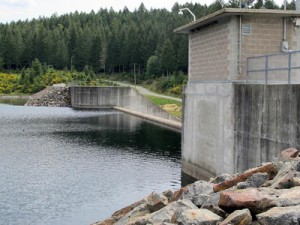 Tuesday, May 10 ~ VICTORIA. The taste and odour of Greater Victoria’s drinking water may be a bit ‘off’ but the water remains safe to drink.
Tuesday, May 10 ~ VICTORIA. The taste and odour of Greater Victoria’s drinking water may be a bit ‘off’ but the water remains safe to drink.
Capital Regional District (CRD) Integrated Water Services has today advised residents of Greater Victoria that an increased level of algae in the Sooke Lake Reservoir (reservoir shown in CRD photo) is causing potential taste and odour in the drinking water.
“In the last few days, higher numbers of a golden-brown algae called Uroglena have been observed in the Sooke Lake Reservoir some distance north of the intake tower,” says Ted Robbins, General Manager, CRD Integrated Water Services. This algae has now moved closer to the intake and is entering the water system. This variety of algae can produce a fishy or metallic taste and odour, however, the Island Health Authority confirms taste and odour are aesthetic parameters only – the water remains safe to drink and the aesthetic taste and odour parameters are not a health concern.
Algae concentrations and locations in Sooke Lake Reservoir change with time but the duration of this current event is predicted to be a few days, according to a CRD news release today. The CRD has adjusted the water intake to a deeper level in the reservoir which is expected to improve the aesthetic water quality. CRD staff are monitoring the quality and safety of the water closely and will keep the public informed of any potential health concerns or changes in water quality.
The Sooke Lake Reservoir supplies most of Greater Victoria. It was at full capacity at April 3, and started declining from 100% full by April 10. As of May 8, the level is down to 95.5% of capacity. There has been little to no rain for the past 10 days or so.
Last year the reservoir supply declined slowly but steadily well into September, even into October, but held its own. Water restrictions did not need to be intensified past Level 1 except for in some rural areas.
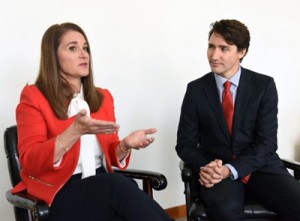 Monday, May 9 ~ OTTAWA. Canada will host the Fifth Replenishment Conference of the Global Fund to Fight AIDS, Tuberculosis, and Malaria in Montréal, Quebec on September 16, 2016. “The Global Fund initiative is a true expression of Canada’s core values – to care for each other, to support those in need, and to prioritize the health and wellness of our global community,” said Prime Minister Trudeau in a news release today.
Monday, May 9 ~ OTTAWA. Canada will host the Fifth Replenishment Conference of the Global Fund to Fight AIDS, Tuberculosis, and Malaria in Montréal, Quebec on September 16, 2016. “The Global Fund initiative is a true expression of Canada’s core values – to care for each other, to support those in need, and to prioritize the health and wellness of our global community,” said Prime Minister Trudeau in a news release today.
The conference will bring global health leaders together in an effort to end the epidemics of three of the world’s most devastating diseases – AIDS, tuberculosis, and malaria – by 2030.
The Prime Minister also announced: “Canada will pledge $785 million, for 2017 to 2019, to help save an additional eight million lives, and stop an additional 300 million new infections by 2019. This investment represents a 20% increase from the previous pledge made for 2014-2016.”
The Global Fund has a new youth-driven social media campaign End It. For Good.
Twitter-posted Photo: Melinda Gates of the Bill & Melinda Gates Foundation, and Prime Minister Justin Trudeau.
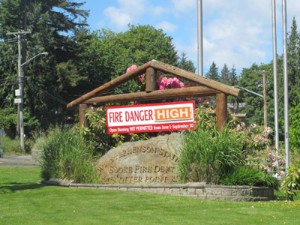 Monday, May 9 ~ SOOKE. Due to increased fire danger levels and increased fire activity, a burning ban on all outdoor burning (except campfires) will go in effect tonight Monday, May 9, 2016 at sunset.
Monday, May 9 ~ SOOKE. Due to increased fire danger levels and increased fire activity, a burning ban on all outdoor burning (except campfires) will go in effect tonight Monday, May 9, 2016 at sunset.
This announcement was made mid-day today, by the District of Sooke and Sooke Fire Department.
East Sooke has already banned burning and Metchosin and Otter Point are reporting that they will have bans taking effect on May 15, says Sooke Fire Chief Steve Sorensen.
 Saturday, May 7 ~ VICTORIA. British Columbia continues to marshal emergency management resources and support to assist neighbouring Albertans who have fled the devastating wildfires, said the BC Ministry of Transportation and Infrastructure in a news release today.
Saturday, May 7 ~ VICTORIA. British Columbia continues to marshal emergency management resources and support to assist neighbouring Albertans who have fled the devastating wildfires, said the BC Ministry of Transportation and Infrastructure in a news release today.
On May 6, Premier Christy Clark announced a $300,000 donation from the Government of BC to the Canadian Red Cross to support relief efforts in Fort McMurray, Alberta, adding to donations by British Columbians including at BC Liquor Stores. Over $73,000 has already been raised to date from donations at BC Liquor Stores.
British Columbians who wish to contribute to the Canadian Red Cross campaign can do so by continuing to make a donation at a BC Liquor Store or by donating directly to the Canadian Red Cross: Call toll-free 1-800-418-1111 or donate online at: http://ow.ly/YQT73000Q5s
Ministry of Health – Alberta has made a national request for health care personnel, including disaster psychosocial volunteers, public health nurses, environmental health officers and paramedics, to be deployed starting at the end of next week.
- Health Emergency Management BC (HEMBC) is coordinating BC’s health system response to support the disaster in Alberta. So far, in the past 24 hours, 30 disaster psychosocial personnel in BC have already stepped up to volunteer when deployments begin. BC’s Disaster Psychosocial Program, operated out of the Provincial Health Services Authority, has a roster of about 220 registered volunteers, which include social workers, counsellors and psychologists.
- HEMBC has also reached out to each of the health authorities and BC Emergency Health Services and is working with them to identify any public health personnel and paramedics who may be available to deploy beginning Friday, May 13, 2016.
- BC’s Mobile Medical Unit – a state-of-the-art mobile medical facility – remains on standby to respond as necessary. The Mobile Medical Unit is a hospital on wheels that can respond to emergency or disaster needs throughout the province and in other jurisdictions.
Ministry of Forests, Lands and Natural Resource Operations – Eighty-one firefighters, 12 helicopters and 12 pieces of heavy equipment from BC are currently battling the Siphon Lake Fire which has crossed into Alberta in the Peace Valley.
Emergency Management BC – Emergency Management BC (EMBC), the lead agency in BC for coordinating and responding to emergencies, has reached out to the Alberta Emergency Management Agency to offer help, including sharing incident management staff that organize and lead in emergency operation centres. EMBC is ready to provide emergency evacuation specialists and a mobile support team of experts in working with emergency social services teams on the ground.
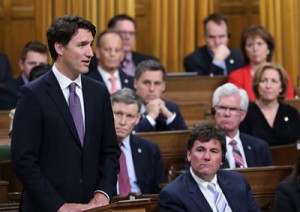 Friday, May 6 ~ OTTAWA. “Today, I speak for all Canadians when I say that our hearts go out to the families affected by this terrible fire,” said Prime Minister Justin Trudeau today regarding the Fort McMurray fire. We are thinking of – and praying for – the people of Fort McMurray. Though Alberta’s loss is profound, we will get through this tragedy together: as friends, as neighbours, as Canadians.
Friday, May 6 ~ OTTAWA. “Today, I speak for all Canadians when I say that our hearts go out to the families affected by this terrible fire,” said Prime Minister Justin Trudeau today regarding the Fort McMurray fire. We are thinking of – and praying for – the people of Fort McMurray. Though Alberta’s loss is profound, we will get through this tragedy together: as friends, as neighbours, as Canadians.
“I encourage everyone to make a donation to www.redcross.ca, and help the thousands of displaced residents of Fort McMurray,” Trudeau stated on the PMO’s website. The Government of Canada will match every dollar donated to the Canadian Red Cross in support of the Fort McMurray relief effort.
The federal commitment applies to individual charitable donations made within Canada. It will be backdated to May 3, 2016 and will continue until May 31, 2016. There will be no financial cap on the federal government’s contribution. With the Government of Alberta also matching donations, this results in a total of $3 donated when individual Canadians donate $1.
“The outpouring of goodwill and compassion we have already seen from Canadians across the country has not only been inspirational, but stands as a testament to who we are as a nation,” Trudeau said.
“I would once again like to thank the many first responders who are working tirelessly, day and night, to fight this fire. To those who have lost so much: we are resilient, we are Canadians, and we will make it through this difficult time, together.”
Photo from the Prime Minister’s website – Trudeau remarking on the Fort McMurray fire, in the House of Commons
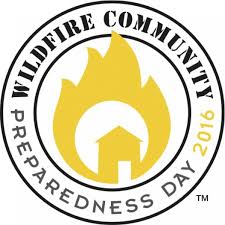 Friday, May 6 ~ VICTORIA. Tomorrow, Saturday May 7, is national Wildfire Community Preparedness Day, as declared by FireSmart Canada. This is the second annual Wildfire Community Preparedness Day, an opportunity for communities to learn more about preventing fires and reducing wildfire risks.
Friday, May 6 ~ VICTORIA. Tomorrow, Saturday May 7, is national Wildfire Community Preparedness Day, as declared by FireSmart Canada. This is the second annual Wildfire Community Preparedness Day, an opportunity for communities to learn more about preventing fires and reducing wildfire risks.
British Columbia is experiencing an early and active start to the wildfire season, says the BC Ministry of Forests, Lands and Natural Resource Operations. “So it’s more important than ever for communities and individuals to do their part to help protect homes, resources and infrastructure from wildfire threats.”
individual homeowners are encouraged to take a really close look at their properties to determine how they could make them more fire-resistant by using simple FireSmart principles.
The recently updated FireSmart Homeowner’s Manual was developed specifically to help homeowners reduce the risk of personal property damage from wildfire. The manual contains helpful fire prevention tips. FireSmart activities may include:
- trimming and thinning out trees, shrubs and other vegetation
- removing flammable material from the property, such as dead wood or
tree needles - ensuring that woodpiles and other easily ignited items are stored
away from buildings - using fire-resistant construction and landscaping materials
Anyone heading out to BC’s beautiful back-country must remain vigilant when doing any open burning, since conditions are very dry in some areas of the province. Information about current campfire and
open burning prohibitions is available on the BC Wildfire Service website
In September 2015, the BC government and the Union of BC Municipalities launched FireSmart Community Grant Program ($500,000) to encourage more communities to participate in the FireSmart program.
“Wildfire prevention is everyone’s responsibility and failing to use fire properly comes at a greater cost than ever,” says the Ministry of BC Forests, Lands and Natural Resource Operations. On April 1, 2016 the BC government significantly increased ticket fines for 19 different violations under the Wildfire Act and seven violations under the Wildfire Regulation. The fine for failing to comply with a fire restriction under the Wildfire Act has more than tripled, from $345 to $1,150.
Anyone who spots a wildfire, unattended campfire or open burning violation should immediately call *5555 on a cellphone or 1-800-663-5555 toll-free. Current updates about wildfire activity is online at: http://www.bcwildfire.ca
Friday, May 6 ~ VANCOUVER. At the Western Premiers Conference in Vancouver this morning, BC Premier Christy Clark outlined to media the various topics that were discussed by premiers/deputy premiers from BC, Alberta, Saskatchewan, Manitoba, and Yukon.
Health care is funded 17% by the federal government at this time, due to legislation brought in by the previous federal government. Premier Clark said the western premiers want to see it back up to 25%, and hopes the current Liberal federal government will stick to their promise on “addressing the funding formula”. She said that, years ago, federal health transfer payments were 50%. Clark said that as the population ages, health care funding needs will increase. She said that the premiers discussed home care and mental health as issues that are “important to all Canadians”.
Premier Clark expressed concern about a Bank of Montreal statement in the last day or so that the Canadian economy will be seriously impacted by the outcomes of the wildfire at Fort McMurray. Apparently the current 1.5% predicted growth rate of the Canadian economy could sink to zero, as the oil resource industry becomes seriously impacted by diminished oil production in Alberta.
Clark said on behalf of all the provinces at this week’s Western Premiers’ Conference that the western provinces are in favour of Canada being part of the Trans-Pacific Partnership (TPP). They urge the House of Commons to sign that agreement.
Manitoba is not yet officially a member of the Western Premier’s Conference, but newly-elected Manitoba Premier Brian Pallister eagerly participated and hopes Saskatchewan and Alberta will welcome Manitoba into the fold.
Emergency management was very much on the agenda for the western premiers, said BC Premier Clark. Alberta Premier Rachel Notley was unable to attend the conference that began May 5 in Vancouver, due to her full attention being on management of the Fort McMurray wildfire impacts. The magnitude of impacts of the fire that began May 3 are becoming more clear as the days unfold. Today during the news conference, Alberta Deputy-Premier Sarah Hoffman (also Alberta minister of health) noted and appreciated, for example that psychological services to support firefighters are needed and being provided by BC.
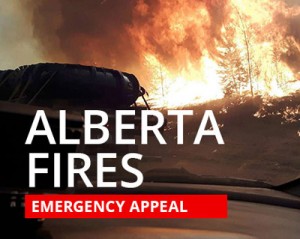 Thursday, May 5. About 88,000 people — the entire population of Fort McMurray, Alberta, have been evacuated from their community due to a wildfire that remains out of control. Fort McMurray is the third-largest municipality in Alberta, after Calgary and Edmonton. About 25,000 of those residents went north to evade the fire, but resources there are running thin; they will be escorted by RCMP down to Edmonton and Calgary starting Friday.
Thursday, May 5. About 88,000 people — the entire population of Fort McMurray, Alberta, have been evacuated from their community due to a wildfire that remains out of control. Fort McMurray is the third-largest municipality in Alberta, after Calgary and Edmonton. About 25,000 of those residents went north to evade the fire, but resources there are running thin; they will be escorted by RCMP down to Edmonton and Calgary starting Friday.
Continued high temperatures and winds in the range of 30 to 50 km per hour over the first three days of the fire have not abated. The first rainfall in the forecast for Fort McMurray is late Sunday night (May 8) or early Monday, according to CBC-TV news.
The best way for Canadians to help is to donate funds to the Canadian Red Cross. As of this evening, about $11 million has reportedly already been donated to the Red Cross in just two days. Evacuation from the fire started on Tuesday, May 3.
The Red Cross says they have a network of highly-trained volunteers who are there to help. “We’re actively scaling up our operations in response to the fires. We are supporting registration, family re-unification, assisting in shelters in Edmonton and Lac La Biche, as well as providing accommodation and basic necessities like food and water. Specially-trained volunteers are providing care and comfort to those who have suffered emotional trauma. Additional personnel are on standby and ready if needed.” The Red Cross says they will be working alongside those affected not just today, but for the weeks and months and even years that follow as they recover. “Canadians looking to help can make a donation to theAlberta Fires Appeal, which will help us deliver assistance to those who need it.”
The federal government and the Alberta government are matching all donations – dollar for dollar — as made by Canadians to the Red Cross for the support and relief of Fort McMurray evacuees. Emergency shelters seem to be well-organized and are handling a variety of needs for a large number of people. Not just food and a place to sleep, but also clothing, pet care, and even on-site access to insurance companies reps.
Many of the homes and other buildings in Fort McMurray have been completely destroyedby the fire, as well as many vehicles. The Bank of Montreal has reportedly estimated the number of expected insurance claims to reach as high as $9 billion. By comparison, the insurance claims after the fire at Slave Lake, AB in 2011 tallied to about $700 million.
Some evacuees interviewed on TV said they wonder why the evacuation was not called sooner. Some of them were driving through ‘walls of fire’ on their way out of town, and had little to no time to gather any belongings.
Wednesday, May 4. Prime Minister Justin Trudeau today announced that he will meet with US President Barack Obama, and the President of Mexico, Enrique Peña Nieto, in Ottawa on June 29 for the North American Leaders’ Summit.
“The Government of Canada has committed to put people first and deliver help to middle class Canadians. A strong middle class means that hardworking people can look forward to a good standard of living and better prospects for their children,” it was stated in a news release from the Prime Minister’s office.
The North American Leaders’ Summit will give Canada the chance to work closely with the United States and Mexico, so that each country can create jobs, strengthen their communities, and build a clean growth economy. The leaders will also take important steps to create a more integrated, sustainable, and globally-competitive North American economy.
This marks the first time since 2007 that Canada will host the Summit, and highlights Canada’s commitment to rebuild the relationship with our North American partners. In the spirit of renewed cooperation, Canada, the United States, and Mexico will work together to leave our continent more prosperous and sustainable than the one we know today.
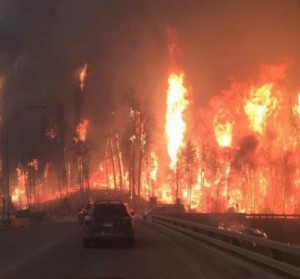 Wednesday, May 4. BC Liquor Stores customers can support Red Cross relief efforts for residents of Fort McMurray. The emergency evacuation of 80,000 residents from the Fort McMurray area has been required because of the fire that continues to burn out of control (as of 4pm Pacific Time May 4) .
Wednesday, May 4. BC Liquor Stores customers can support Red Cross relief efforts for residents of Fort McMurray. The emergency evacuation of 80,000 residents from the Fort McMurray area has been required because of the fire that continues to burn out of control (as of 4pm Pacific Time May 4) .
Starting today, BC Liquor Stores customers can donate $2, or $5 or more to help the Red Cross in Alberta reunite family members, provide evacuees with shelter, food and water, and later, assist with longer-term needs as the community rebuilds.
A massive wildfire started spreading in the Fort McMurray region earlier this week, threatening more than a dozen nearby communities, destroying property and forcing residents to flee their homes. After a mandatory evacuation order was issued yesterday, officials estimate as many as 1,600 homes and buildings have been destroyed in an area spanning 10,000 hectares.
Donations made to the Red Cross in BC Liquor Stores from April 27 through May 3 will be directed to Ecuador earthquake recovery efforts, as originally planned.
Coralee Oakes, Minister of Small Business, Red Tape Reduction and Minister Responsible for the Liquor Distribution Branch said in a news release today: “British Columbia knows all too well the devastation of wildfires, and our thoughts are with Fort McMurray during this difficult time. By donating to the Red Cross at BC Liquor Stores, British Columbians are doing our part to support everyone impacted by the fire and ensure they will have a strong recovery.”
Blain Lawson, general manager and CEO, BC Liquor Distribution Branch said: “We are proud of our partnership with the Red Cross, and the generosity always shown by our customers and employees during times of crisis. By collecting donations at BC Liquor Stores, we’re providing an easy way for people to reach out and help our neighbours in Alberta.”
BC Liquor Stores customers and employees have supported Red Cross disaster relief for humanitarian crises at home and abroad since 2003, when stores first collected donations to support victims affected by catastrophic wildfires raging in British Columbia. Since then, more than $2 million has been raised for Red Cross humanitarian crises in Nepal, Haiti, Pakistan, Japan, Africa and Syria, as well as for disaster relief efforts in New Orleans and Alberta.
In 2013, BC Liquor Stores collected more than $170,000 for Alberta Flood Relief.
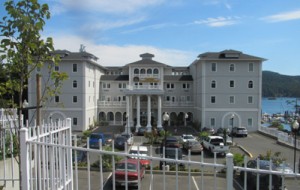 Tuesday, May 3 ~ SOOKE. A film production is underway at the Prestige Oceanfront Resort in Sooke. Starting yesterday, May 2, a film with the working title The Convenient Groom stars actors Vanessa Marcil and David Sutcliffe. Production Manager, Darren Robson, said filming would continue to Thursday, May 5, all day each day from 8:30 am to 8:30 pm.
Tuesday, May 3 ~ SOOKE. A film production is underway at the Prestige Oceanfront Resort in Sooke. Starting yesterday, May 2, a film with the working title The Convenient Groom stars actors Vanessa Marcil and David Sutcliffe. Production Manager, Darren Robson, said filming would continue to Thursday, May 5, all day each day from 8:30 am to 8:30 pm.
Marcil is an American actress, best known for her television roles as Brenda Barrett onGeneral Hospital, Gina Kincaid on Beverly Hills, 90210, and Sam Marquez on Las Vegas. Sutcliffe is a Canadian actor, best known for playing Christopher Hayden, Rory Gilmore’s father and Lorelai Gilmore’s on-and-off boyfriend, on the CW show Gilmore Girls. He played the lead role in Cracked as detective Aidan Black.
According to the District of Sooke, all extras hired are from Vancouver Island, and one hair and makeup trainee has been hired from Sooke. “We are very proud of Sooke’s natural beauty that continues to attract the film industry,” said Mayor Tait.
Yesterday the BC government announced the tax credits to the film industry are being cut back from 33% to 28% (eligible on BC labour costs), effective October 1, 2016. The digital animation and video effects (DAVE) industry is also taking a bit of a cutback, with their tax credit opportunity being reduced from 17.5% to 16%, effective October 1, 2016. Those subsidies have been forecast to cost BC taxpayers nearly $500 million in 2015-16, up from an average of $313 million over the past three years, and an average of $182 million over the five years prior to 2012-13.
The Province announced in the February budget it would establish an industry-government working group with representatives from the film and television industry. “These meetings helped the Province understand the industry’s perspectives and provided an opportunity to discuss potential options,” it was stated in a Ministry of Finance news release yesterday.
The BC film and television tax credit program consists of five distinct tax credits: Basic, Regional, Distant Location Regional, Film Training, Digital Aniination or Visual Effects.
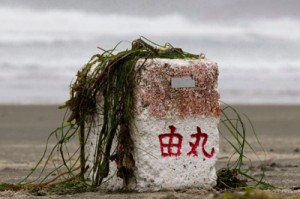 Monday, May 2 ~ VICTORIA. A final round of tsunami debris cleanup funding has been issued by the Province of BC. It was announced today that BC has awarded over $330,000 to successful applicants to continue tsunami debris removal projects along BC’s coastline.
Monday, May 2 ~ VICTORIA. A final round of tsunami debris cleanup funding has been issued by the Province of BC. It was announced today that BC has awarded over $330,000 to successful applicants to continue tsunami debris removal projects along BC’s coastline.
The funding will be used for tsunami debris cleanup efforts including: training and education about debris identification; sorting, recycling, repurposing and disposal of debris; transportation of volunteers and collected debris in and out of remote areas; and cleanup supplies.
According to the BC Ministry of Environment, there has only been a minimal amount of confirmed tsunami debris in BC – mostly large-scale items such as a motorcycle in a shipping container, a large cement tank and small fishing boats. Efforts are being directed towards suspected tsunami debris consisting of lumber, plastics and polyfoam, fishing nets and buoys.
The funding was made available through a one-time grant of approximately $1 million from the Government of Japan to help clean up tsunami debris.
This final round of funding included the following awarded amounts: $115,000 – Haida Gwaii Tsunami Debris Committee; $85,000 – Living Oceans Society; $70,000 – Nuu-chah-nulth Tribal Council; $30,000 – District of Ucluelet; $25,000 – Ocean Legacy Foundation; $6,100 – Surfrider Foundation – Vancouver Island.
The final funding amounts allocated between 2013 and 2016 for tsunami debris cleanup are: $254,000 – Haida Gwaii Tsunami Debris Committee; $206,893 – Great Canadian Shoreline Cleanup – Vancouver Aquarium; $166,200 – Nuu-chah-nulth Tribal Council; $111,538 – District of Ucluelet; $85,000 – Living Oceans Society; $60,000 – Coastal First Nations; $10,179 – Surfrider Foundation – Vancouver Island; $25,000 – Ocean Legacy Foundation.
Additionally, the ministry has developed a mapping tool to assist those receiving funding with cleanup efforts. The map combines high-resolution aerial photographs from along BC’s coast with information about the existing debris at each photo location. The North Pacific Marine Science Organization (PICES) was awarded $65,000 to provide the aerial photos and corresponding data. The map can be accessed at: http://ow.ly/4naUTp
For more information on tsunami debris: http://ow.ly/4naUVN | Photo sourced online (credit: CTV News)
![]() Monday, May 2 ~ VICTORIA. The Victoria Real Estate Board (VREB) says that April 2016 property sales in the Victoria area “continue to exceed expectations”. As prices have been skyrocketing upwards for over a year, the current situation is certainly nothing short of a ballooning market, based on market factors, not the value of the house itself. Bubbles ultimately tend to burst. Growth of any kind always reaches a plateau or a breaking point, and that includes financial markets.
Monday, May 2 ~ VICTORIA. The Victoria Real Estate Board (VREB) says that April 2016 property sales in the Victoria area “continue to exceed expectations”. As prices have been skyrocketing upwards for over a year, the current situation is certainly nothing short of a ballooning market, based on market factors, not the value of the house itself. Bubbles ultimately tend to burst. Growth of any kind always reaches a plateau or a breaking point, and that includes financial markets.
Those with enough money to quickly buy up properties in the currently inflated market are making it quite difficult for normal wage-earners to buy into the market. This has pushed up demand for rental accommodation as well.
The raw average of homes sold in the overall Greater Victoria area was $756,143 in April 2016. That’s up over $200,000 compared to just a few years ago. [Graph shows a 10-year spread from 2006 to 2016, where the HPI benchmark price of a single family home — the red line in the graph — in Greater Victoria went up from about $350,000 to the current $568,100. Townhomes went from about $300,000 to $400,000. Condos rose from about $200,000 to around $300,000 in that 10-year period.
A total of 1,286 properties sold in the Greater Victoria area in April. Not only is that an increase of 53% compared to 840 properties sold in the same month last year, it is the highest number of properties ever sold in any month under the VREB.
Good properties are being snapped up. Inventory levels remain lower than the previous year, with 2,594 active listings for sale on the VREB MLS at the end of April, which is 34% fewer than the 3,945 active listings at the end of April 2015.
“We continue to see extraordinary interest in the Victoria and area housing market. Likely this is because the trends we reviewed last month continue — low mortgage rates, higher employment numbers, diversity of properties for sale and of course the growing international awareness that Victoria is an amazing place to live,” notes Mike Nugent, 2016 VERB president.
“The vast majority of Victoria buyers are from within the local Victoria marketplace. Last year 70.5 per cent of buyers were from Victoria, and this year in the first quarter we see 72.5 per cent of buyers from the area. That means about one-quarter of property purchases in the south Vancouver Island area are being made by foreign buyers, as well as buyers from the BC Lower Mainland (about 8.2% in the first quarter of this year, up from 7.4% in 2015).
“It’s also noteworthy that we’ve seen a decrease in buyers from Alberta,” says Nugent. “Last year we saw 5.7%, and this quarter we saw 3.9%, and a small increase in buyers from the USA (from 0.8% to 1.0%. The increase in buyers from Asia was 0.8% this first quarter, up from 0.7%.
The MLS HPI (data-adjusted) benchmark value for a single family home in the Victoria Core in April, 2015 was $581,700 in April, up 17.7% from April’s $684,900 level last year.
“If you are shopping for a home right now, there is a good chance that if you’re looking in a higher demand area (Victoria core, Saanich, Oak Bay) you may find yourself in a multiple offer situation when you go to purchase. This is because there are more buyers than homes for sale and so the market is more competitive than we’ve seen in years past,” adds Nugent. Many homes are selling far over asking price.
As gently as possible, VREB is suggesting that people — especially first-time buyers — may not be able to afford houses anymore. “As a consumer it may pay to get creative, consider types of property and locations you may have not originally identified. For example, condos and townhomes may be a great alternative for first time buyers. Some locations in the Victoria area are under slightly less pricing pressure, for example properties in the West Shore or Esquimalt area are close to amenities, share the same amazing weather as other nearby neighbourhoods.”
HPI price comparisons for single family homes on the west side of south Vancouver Island:
- View Royal $573,400 up from $571,700 a month ago, and up from $508,300 a year ago. Actual raw average sale price was $579,645 (22 sales) in April.
- Colwood $499,800 up from $488,600 one month ago, and up from $469,000 one year ago. Actual raw average sale price was $577,791 (30 sales) in April.
- Metchosin $637,400 up from $628,700 a month ago, and up from $606,100 a year ago. Actual raw average sale price was $629,875 (8 sales) in April.
- Langford $449,500, up from $440,200 one month ago, and up from $424,800 one year ago. Actual raw average sale price was $530,055 (114 sales) in April.
- Sooke $374,300 up from $366,400 a month ago, and up from $355,000 a year ago. Actual raw average sale price was $455,367 (56 sales) in April.
HPI pricing is data-adjusted to modify actual monthly sales averages based on perceptions about proximity to services, neighbourhood amenities, proximity to schools, etc. Except for Metchosin which generally has larger homes and/or rural acreages, the actual raw averages for each of the west shore sales areas were higher than the HPI (some of them significantly — such as Colwood and Sooke).
VREB stats are available online at www.vreb.org
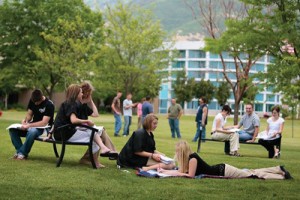 Friday, APRIL 29 ~ VICTORIA. The Province of BC has introduced legislation this week to make campuses safer and more responsive to the needs of victims by requiring public post-secondary institutions to establish sexual misconduct policies within one year of the bill receiving Royal Assent.
Friday, APRIL 29 ~ VICTORIA. The Province of BC has introduced legislation this week to make campuses safer and more responsive to the needs of victims by requiring public post-secondary institutions to establish sexual misconduct policies within one year of the bill receiving Royal Assent.
“As parents, we expect our sons and daughters will be safe,” said Premier Christy Clark in a news release on Wednesday, April 27. “And for students, university is often the first place they’re on their own. They have every right to feel safe on campus and today is a step in the right direction.”
Recent attention to sexualized violence on university and college campuses and the emergence of new educational and policy initiatives has provided a new focus.
The University of Victoria issued a release the next day, saying UVic will begin consultations in May to develop a separate policy on sexualized violence that will build on current policies and practices and reinforce the university’s commitment to a safe campus where sexualized violence is unacceptable. UVic president Jamie Cassels initiated the policy review earlier this year that will include widespread consultation, consider policies and practices at other institutions and learn from local, provincial and national conversations on how to respond to sexualized violence, which can have a profound and long lasting effect on survivors.
“Sexualized violence is a significant issue both on our campus and in the wider community and we have an important role to play as leaders, educators and community partners,” says Cassels. More information is available at www.uvic.ca/info/sexualizedviolencepolicy .
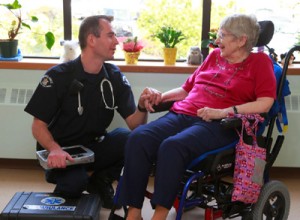 Wednesday, APRIL 27 ~ VICTORIA. Health Minister Terry Lake has announced the 73 rural and remote BC communities that will welcome community paramedicine, a program that offers residents enhanced health services from paramedics.
Wednesday, APRIL 27 ~ VICTORIA. Health Minister Terry Lake has announced the 73 rural and remote BC communities that will welcome community paramedicine, a program that offers residents enhanced health services from paramedics.
“The Community Paramedicine Initiative is a key component of our plan to improve access to primary health-care services in rural BC,” Lake said. “By building upon the skills and background of paramedics, we are empowering them to expand access to care for people who live in rural and remote communities, helping patients get the care they need closer to home,” it was stated in a news release today.
The health ministry says: “The program is just one way the Province is working to enhance the delivery of primary care services to British Columbians. The services provided may include checking blood pressure, assisting with diabetic care, helping to identify fall hazards, medication assessment, post-injury or illness evaluation, and assisting with respiratory conditions.”
Under this program, paramedics will provide basic health-care services, within their scope of practice, in partnership with local health-care providers. The enhanced role is not intended to replace care provided by health professionals such as nurses, but rather to complement and support the work these important professionals do each day, delivered in non-urgent settings, in patients’ homes or in the community.
“As a former BC Ambulance paramedic, I understand the potential benefits of community paramedicine,” said Jordan Sturdy, MLA for West Vancouver-Sea to Sky. “Expanding the role of paramedics to help care for the health and well-being of British Columbians just makes sense.”
Community paramedicine broadens the traditional focus of paramedics on pre-hospital emergency care to include disease prevention, health promotion and basic health-care services. This means a paramedic will visit rural patients in their home or community, perform assessments requested by the referring health-care professional, and record their findings to be included in the patient’s file. They will also be able to teach skills such as CPR at community clinics.
“Community paramedics will focus on helping people stay healthy and the specific primary care needs of the people in these communities,” said Linda Lupini, executive vice president, BC Emergency Health Services. “This program also allows us to enhance our ability to respond to medical emergencies by offering permanent employment to paramedics in rural and remote areas of the province.”
“Community paramedicine brings improved patient care and more career opportunities to rural and remote areas,” said Bronwyn Barter, president, Ambulance Paramedics of BC (CUPE 873). “Paramedics are well-suited to take on this important role in health-care provision.”
Community paramedicine was initially introduced in the province in 2015 in nine prototype communities. The initiative is now expanding province-wide, and will be in place in 31 communities in the Interior, 18 communities in northern BC, 19 communities on Vancouver Island, and five communities in the Vancouver coastal area this year.
At least 80 new full-time equivalent positions will support the implementation of community paramedicine, as well as augment emergency response capabilities. Positions will be posted across the regional health authorities. The selection, orientation and placement process is expected to take about four months.
Community paramedics are expected to be delivering community health services in northern BC this fall, in the Interior in early 2017, on Vancouver Island and the Vancouver coastal area in the spring of 2017.
BC Emergency Health Services has been coordinating the implementation of community paramedicine in BC with the Ministry of Health, regional health authorities, the Ambulance Paramedics of BC (CUPE 873), the First Nations Health Authority and others.
 Tuesday, April 26 ~ VICTORIA. The new McKenzie interchange will be built as a partial cloverleaf reflecting the preferred option of 75% of those who participated in the public consultation, it was announced today by BC Transportation and Infrastructure Minister Todd Stone today. This design is also the safest, most efficient option and best meets the long-term needs of this region, it was stated in a news release. Construction is slated to begin this fall.
Tuesday, April 26 ~ VICTORIA. The new McKenzie interchange will be built as a partial cloverleaf reflecting the preferred option of 75% of those who participated in the public consultation, it was announced today by BC Transportation and Infrastructure Minister Todd Stone today. This design is also the safest, most efficient option and best meets the long-term needs of this region, it was stated in a news release. Construction is slated to begin this fall.
“I would like to thank everyone who has taken the time to let us know their thoughts on the McKenzie interchange project, as this input is fundamental to ensuring the interchange meets the needs of those who will be using it,” said Stone. “We heard overwhelming support for the partial cloverleaf design, supported by the team’s ongoing technical analysis, and now our work continues in discussing further details with stakeholder groups and the public as we finalize the design.
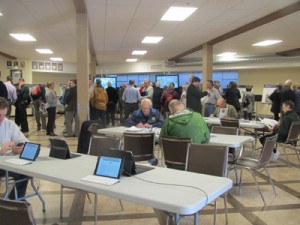 The first open house was held Nov. 17, 2015 with 610 attendees. The second open house was held February 24 2016 at which 353 people attended (see February 26, 2016 West Shore Voice News, page 1).
The first open house was held Nov. 17, 2015 with 610 attendees. The second open house was held February 24 2016 at which 353 people attended (see February 26, 2016 West Shore Voice News, page 1).
The McKenzie Interchange project is costing $85 million. The BC government is spending $53 million and the federal government portion is $32.6 million. The project was first announced on July 22, 2015 along the roadside of Hwy 1. See July 24, 2015 Sooke Voice News, page 1.
Technical analysis shows that the partial cloverleaf will operate more safely and efficiently than other option – the diamond interchange. The partial cloverleaf reduces the chances of collisions and, as such, is expected to provide $4 million in additional safety benefits over the other options in just the first 20 years. As well, with no stop lights for vehicles turning left onto McKenzie, travel will be more efficient for traffic now and for expected traffic volume in the future.
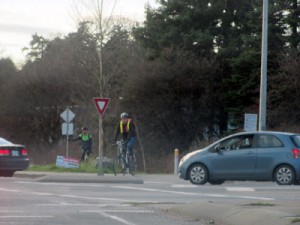 The design also improves access for cyclists, pedestrians and transit users, making travel better for transit users and safer for cyclists and pedestrians, says MOTI. It provides a separated route for a wider Galloping Goose Trail with a new path over the highway and McKenzie Avenue, avoiding the lights and vehicle traffic. The project will also include bus lanes, transit priority signals, and improved connections to bus stops.
The design also improves access for cyclists, pedestrians and transit users, making travel better for transit users and safer for cyclists and pedestrians, says MOTI. It provides a separated route for a wider Galloping Goose Trail with a new path over the highway and McKenzie Avenue, avoiding the lights and vehicle traffic. The project will also include bus lanes, transit priority signals, and improved connections to bus stops.
“Saanich’s interest in this project has always been to ensure that the preferred option addresses the long-term needs of our community,” said Saanich Mayor Richard Atwell. “We look forward to continuing our work with the Province of BC on this important transportation initiative.”
The partial cloverleaf has a larger footprint on the surrounding area affecting Cuthbert Holmes Park. The BC Government says it remains committed to developing the project in an environmentally responsible way and in the best interest of residents. As the project moves forward, staff will continue to work closely with stakeholders, including the District of Saanich, community associations and park stewards in preparing a comprehensive plan to mitigate the impact on the environment, and ensure there is no net loss of park land.
A third open house is coming up on Wednesday, May 18, 2016 (3:30 to 7:30 pm) at St. Joseph the Worker Parish Hall, 753 Burnside Road West. Meetings will also continue with stakeholder groups to develop the remaining details around cycling and pedestrian connections and noise mitigation strategies. The ministry will showcase the final plan at a third open house scheduled for
During the second round of public engagement in February, 75% of respondents supported the partial cloverleaf option (59% strongly agreed; 16% somewhat agreed). As well, 75% of people agreed with the pedestrian and cycling facilities proposed as part of the interchange project (45% strongly agreed; 30% somewhat agreed).
The McKenzie Interchange project team has reviewed more than 1,580 pieces of feedback. Since its launch, the McKenzie Interchange project website has been viewed more than 17,000 times. Results from the second round of consultation can be viewed at:http://engage.gov.bc.ca/mckenzieinterchange/
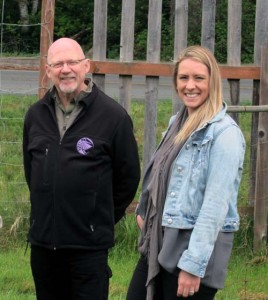 Sunday, April 24 ~ SOOKE. Food security for the Sooke region continues to be an important concern for Randall Garrison, MP (Esquimalt-Saanich-Sooke).
Sunday, April 24 ~ SOOKE. Food security for the Sooke region continues to be an important concern for Randall Garrison, MP (Esquimalt-Saanich-Sooke).
Garrison frequently talks about how Vancouver Island would have only three day supply of fresh food if food transport by ferry were to be interrupted by some sort of emergency. He mentioned it in a speech several years ago at the Sooke Fall Fair opening ceremony, and frequently promotes the cause of fresh food.
Today under partly cloudy skies, Garrison toured Sunriver Community Garden and ALM Organic Farms. Joining him was NDP agriculture and agri-food critic Ruth Ellen Brosseau (Berthier-Maskinonge), MP. They heard about the various benefits and challenges of operating a community garden. Sooke Community Gardens has grown from its initial size of 70 growing plots up to 124 plots that are tended to by individuals or groups. Each of those plots costs $80 for the year. One large tented growing area supplies produce to the Sooke Food Bank.
The custom tour for Garrison and Broisseau at Sunriver Community Gardens today was conducted by Sooke Food CHI rep Anita Wasiuta. Sooke Food CHI organizes the volunteer-run garden area, and has been instrumental in finding grants for development of the garden features including drainage, water supply, and tent coverings.
Tonight Garrison is hosting his 9th annual local food dinner at the Horticultural Centre of the Pacific in Saanich. Brosseau will be the guest speaker at the $100-per-plate political fundraiser. Brosseau has launched a Bill in the House of Commons regarding the elimination of food waste in Canada. She says a lot of food waste occurs in people’s home kitchens. She’s hoping to see a National Food Waste Reduction Day, to heighten people’s awareness.
Garrison says he is not seeking the federal NDP leadership but Brosseau says she has “not closed the door” on that. In about three weeks the NDP Party executive will make a recommendation for timing of the NDP leadership convention at which Thomas Mulcair will be replaced by a new leader who will lead the NDP in the 2019 federal election. Paul Dewar and Nathan Cullen are two long-time NDP’ers who have the profile by which to consider the leadership.
PHOTO Copyright 2016 West Shore Voice News: Randall Garrison and Ruth Ellen Brosseau at the Sunriver Community Garden in Sooke on April 24, 2016.
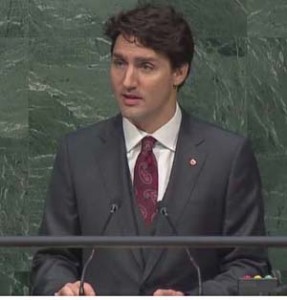 FRI APRIL 22 ~ OTTAWA. On Earth Day and during his visit to the United Nations today in New York, Prime Minister Justin Trudeau has issued the following statement on International Earth Day:
FRI APRIL 22 ~ OTTAWA. On Earth Day and during his visit to the United Nations today in New York, Prime Minister Justin Trudeau has issued the following statement on International Earth Day:
“Today is Earth Day. It is an opportunity for us to cherish and celebrate Canada’s natural beauty from coast to coast to coast. We also take this day to reflect on the impact that each and every one of us can – and must have – on the world around us. We must protect our environment – clean air to breathe and clean water to drink means better health for all Canadians. The Government of Canada has already demonstrated leadership and courage as it tackles climate pollution. We have taken important steps with our partners to grow cleaner businesses, develop clean technologies, reduce the footprint of our resource sector, and protect our National Parks. Climate change is the great global challenge of our time, but it is also an opportunity for those willing to solve it. Around the world, communities grapple with the complications of a rapidly changing environment. Strong action is needed to address the issues we face – and build a cleaner, stronger, and more sustainable world. On this day, I encourage all Canadians to join us in our efforts to conserve and safeguard our natural environment. Every single Canadian has a role to play to protect our earth and leave our children a better world than the one we inherited from our parents.”
Canada has signed on to a UN agreement to do its part to not let greenhouse gas emissions contribute to a global temperature increase of beyond 2°C (compared to pre-industrial levels). Canada’s official inclusion in the agreement must still be ratified by the House of Commons.
[Photo: screen shot from UN news coverage online, April 22, 2016]
 THURS APRIL 21 ~ OTTAWA – Prime Minister Justin Trudeau today issued the following statement on the 90th birthday of Her Majesty Queen Elizabeth II, Queen of Canada:
THURS APRIL 21 ~ OTTAWA – Prime Minister Justin Trudeau today issued the following statement on the 90th birthday of Her Majesty Queen Elizabeth II, Queen of Canada:
“Today, Sophie, our children, and I join Canadians across the country to celebrate the 90th birthday of Her Majesty Queen Elizabeth II, Queen of Canada.I am deeply mindful of Her Majesty’s long and tireless service to the Commonwealth and its citizens. Since Her Majesty acceded to the throne in 1952, Queen Elizabeth II has served with dignity, wisdom, and grace. Over the past 64 years, Her Majesty has stood with Canada through key moments of our country’s history and, as our nation underwent change and transformation, has been a rock of stability and a steadfast keeper of tradition. Today we admire her devotion to duty, and are thankful for her deeply-held affection for our country and unwavering loyalty to all Canadians. On behalf of the Government of Canada, I wish Her Majesty Queen Elizabeth II a happy 90th birthday, and continued health and happiness for many years to come.”
CBC TV carried live coverage of a long walkabout that the Queen undertook on her 90th birthday today near Windsor Castle (CBC screenshot above).
 WED APRIL 20 ~ VICTORIA – The Honourable Judith Guichon, Lieutenant Governor of British Columbia, released the following statement in advance of Her Majesty Queen Elizabeth II’s 90th birthday on April 21, 2016.
WED APRIL 20 ~ VICTORIA – The Honourable Judith Guichon, Lieutenant Governor of British Columbia, released the following statement in advance of Her Majesty Queen Elizabeth II’s 90th birthday on April 21, 2016.
“On behalf of the people of British Columbia, I extend my congratulations and best wishes to Her Majesty on her 90th birthday. Throughout the world Her Majesty is admired for her dedication to service, her devotion to service above self, and the dignity, nobility and wisdom she has exhibited throughout the decades. As Queen of Canada for more than 63 years, Her Majesty has established a special bond with our country, strengthening this connection on the more than 20 occasions that she has visited us and acknowledging Canada’s connection to the monarchy. In person, or through the Royal Family, she remains fully engaged in the growth and evolution of our country to this day. There are few sovereigns in history that have had such a positive impact on their peoples and provided such stability. Join me in wishing Her Majesty a very happy birthday and in celebrating our good fortune as a country with a stable and enduring system of government. Long live The Queen!”
British Columbians are invited to offer their congratulations to Her Majesty between April 21 and June 18 by signing the congratulatory books in Victoria, located at Government House, 1401 Rockland Avenue, or at the Reception Hall of the Parliament Buildings, during open hours. If people wish to send virtual congratulations, they can do so in English at:www.gg.ca/QEII90 or in French at: www.gg.ca/REII90
TUES APRIL 19 ~ VANCOUVER: Over the past year, BC Liquor Stores customers have returned approximately 94 million beverage containers to their local liquor store – enough to fill more than 22 Olympic-sized swimming pools.
It’s just one of many “green” success stories the BC Liquor Distribution Branch (LDB) is celebrating in anticipation of Earth Day on April 22, says the BC Ministry of Small Business and Red Tape Reduction and Responsible for the Liquor Distribution Branch.
The LDB first became a green leader more than four decades ago when it started its beverage alcohol container return program in 1971. At the time, the minimum refund on beer containers was two cents, compared with today’s minimum refund of 10 cents. The containers themselves are now recycled into products as diverse as fibreglass insulation, park benches and sand for golf-course sand traps.
Since 2010, the LDB has invested in 18,621 tonnes of BC carbon offsets, which is equivalent to taking nearly 4,000 passenger vehicles off the road for a year.
 FRI APRIL 15 ~ TOFINO: Emergency Management BC is kicking off Tsunami Preparedness Week in British Columbia with a “high ground hike” in Tofino on Friday, April 15.
FRI APRIL 15 ~ TOFINO: Emergency Management BC is kicking off Tsunami Preparedness Week in British Columbia with a “high ground hike” in Tofino on Friday, April 15.
Minister of State for Emergency Preparedness, Naomi Yamamoto, will be joined by Tofino Mayor, Josie Osborne, and children from Wickaninnish Elementary who are participating in the first-ever Tofino High Ground Hike.
The students will receive emergency kits for participating in the 1 km route that follows the Tofino tsunami evacuation route to the district’s high ground assembly area.
BC’s $1.2-million earthquake exercise taking place in Port Alberni on June 7-10, 2016 will be BC’s first-ever, full-scale, earthquake exercise to emergency response throughout the entire provincial landscape, said Minister of State for Emergency Preparedness Naomi Yamamoto today in Victoria.
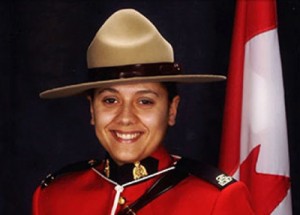 TUES APRIL 12 ~ WEST SHORE: The funeral service for Cst. Sarah Beckett will be held at The Q Centre, 1767 Island Highway in Victoria, BC on Tuesday April 12, 2016. The service will begin at 2pm.
TUES APRIL 12 ~ WEST SHORE: The funeral service for Cst. Sarah Beckett will be held at The Q Centre, 1767 Island Highway in Victoria, BC on Tuesday April 12, 2016. The service will begin at 2pm.
There will be a march to the funeral composed of Cst Beckett’s Depot troop mates, her fellow police officers from Westshore Detachment, as well as other police officers from the RCMP and several partnering municipal police departments and uniformed enforcement agencies.
The procession will begin on Wilfert Road at approximately 1pm, turning south down Island Highway. Viewing access to the Procession is recommended at the corner of Wilfert Road and the Island Hwy. The march will continue south down the Island Highway and turn left at the Juan de Fuca Greater Victoria Public Library, continuing down the service road, behind the Westshore Parks and Recreation Centre and finishing at The Q Centre.
The memorial service will include music, a video collage and scripture (Psalm 23:1-6… The Lord is my shepherd; I shall not want). After a rendition of Amazing Grace two dignitaries will speak: Commissioner Bob Paulson – Royal Canadian Mounted Police (RCMP) and Deputy Commissioner Craig Callens, Commanding Officer of the BC RCMP (“E” Division).
To watch live online, the service can be viewed online athttp://www.livestream.com/rcmpgrc .
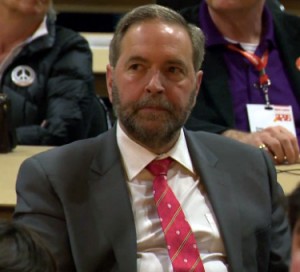 SUN APRIL 10 ~ EDMONTON: UPDATE 12 noon (Pacific): The NDP convention gave their Leader Tom Mulcair only 48% support to carry on; a goal of around 70& was considered necessary for him to continue as leader. In a short speech he said he will stay on until a new leader is determined. A leadership convention must be held within 12 months, according to the NDP Party constitution.
SUN APRIL 10 ~ EDMONTON: UPDATE 12 noon (Pacific): The NDP convention gave their Leader Tom Mulcair only 48% support to carry on; a goal of around 70& was considered necessary for him to continue as leader. In a short speech he said he will stay on until a new leader is determined. A leadership convention must be held within 12 months, according to the NDP Party constitution.
As posted earlier today, Sunday morning:Federal NDP Leader Tom Mulcair will address the 2016 NDP convention delegates in Edmonton this morning, starting around 9 am Pacific Time.
The general direction of the convention has, during this weekend (April 8 to 10), seen an internal conflict of mindsets … progressive in terms of traditional NDP progressive change, and desires to become an electable party with an electable leader.
On Friday night there was a live-streamed series of statements from delegates as a manner of debriefing about how the NDP handled the Fall 2015 election campaign, and how they fell from 95 seats in the House of Commons to the present 44.
It may come out in time how much Mulcair had to bend during the election campaign (by choice or otherwise) to the directives of the party leadership, as to how to unfold the campaign.
 FRI APRIL 8 ~ VANCOUVER / VANCOUVER ISLAND: BC Ferries is offering free complimentary travel for emergency first responders who are travelling to attend the memorial service for Cst Sarah Beckett on Tuesday, April 12. As well, an additional Tsawwassen – Swartz Bay sailing has been added for 10 a.m. on April 12. The Memorial Service will be held at 2 p.m. at The Q Centre in Colwood.
FRI APRIL 8 ~ VANCOUVER / VANCOUVER ISLAND: BC Ferries is offering free complimentary travel for emergency first responders who are travelling to attend the memorial service for Cst Sarah Beckett on Tuesday, April 12. As well, an additional Tsawwassen – Swartz Bay sailing has been added for 10 a.m. on April 12. The Memorial Service will be held at 2 p.m. at The Q Centre in Colwood.
West Shore RCMP Constable Sarah Beckett, 32, was killed in a motor vehicle incident while on duty in the early morning hours of April 5. See more about the crash and Cst Beckett on the West Shore regional news page (April 6 entry, updated April 8).
“With 47 terminals around the province, BC Ferries works closely with all police services in BC and we sincerely appreciate their support,” said Corrine Storey, BC Ferries’ Vice President of Customer Services. “This offer is a small gesture to show our support and appreciation for all officers and first responders around the province who work diligently to keep our communities safe.”
Complimentary travel for Emergency First Responders is valid on April 12 and 13 on any BC Ferries route travelling to and from Vancouver Island for the Memorial Service. Officers and Emergency First Responders will be asked to identify themselves to ticket agents by uniform or official ID. For those travelling to attend the Memorial Service, advance reservations are recommended by calling 1-888-BC FERRY (223-3779).
 WED APRIL 6 ~ WEST SIDE OF THE ISLAND: Coming up this weekend in Nanaimo is the annual convention of the Association of Vancouver Island and Coastal Communities (AVICC), April 8 to 10. Municipalities from around Vancouver Island and coastal areas of mainland BC come together to discuss common concerns, issues and initiatives.
WED APRIL 6 ~ WEST SIDE OF THE ISLAND: Coming up this weekend in Nanaimo is the annual convention of the Association of Vancouver Island and Coastal Communities (AVICC), April 8 to 10. Municipalities from around Vancouver Island and coastal areas of mainland BC come together to discuss common concerns, issues and initiatives.
- Attending AVICC this weekend from the City of Langford will be Councillors Roger Wade, Denise Blackwell and Lillian Szpak. Langford has put forward a resolution with respect to the Island Corridor Foundation.
- Attending AVICC this weekend from the City of Colwood will be Mayor Carol Hamilton and Councillor Cynthia Day. Colwood has put forward a motion about youth in care.
- Attending AVICC this weekend from the District of Sooke will be Mayor Maja Tait, and Councillors Rick Kasper and Ebony Logins all of whom have attended previous AVICC conventions. Councillor Kerrie Reay will also attend this year.
On Friday afternoon, delegates will be addressed by the Hon Peter Fassbender, BC Minister of Community, Sport and Cultural Development. There will also be a Keynote address by Chief Dr Robert Joseph of Reconciliation Canada.
A full day on Saturday includes an address by UBCM President Al Richmond, a presentation about Municipal Insurance, and a presentation by FortisBC. Workshops on Saturday include Conflict Engagement and Communications, and on Social Procurement: a new approach to economic development. The City of Nanaimo will be offering a tour of their new water treatment plant.
The half-day on Sunday has a high-power lineup. Leader of the Official Opposition, John Horgan will address the convention, as well as Leader of the Green Party, Dr Andrew Weaver. A talk called Moving forward with integrated asset management (looking after infrastructure) will be presented at 10:45 am.
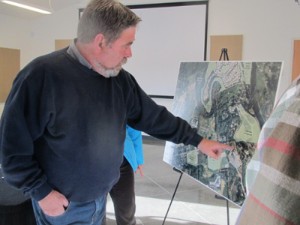 TUES APRIL 5 ~ SOOKE AREA: A land opportunity ‘too good to pass up’, is very much front and center for the board of the SEAPARC recreation commission that serves taxpayers in Sooke and the Juan de Fuca (JdF) Electoral Area.
TUES APRIL 5 ~ SOOKE AREA: A land opportunity ‘too good to pass up’, is very much front and center for the board of the SEAPARC recreation commission that serves taxpayers in Sooke and the Juan de Fuca (JdF) Electoral Area.
A public open house to explain the proposed 23-acre land purchase was hosted by SEAPARC Chair Mike Hicks (in photo) and SEAPARC manager Steve Knoke yesterday evening, April 4, at the JdF Services Building in Otter Point. This first open house is being followed by four more opportunities to view display boards and chat with SEAPARC reps coming up in other areas of the served area: Shirley, East Sooke, Port Renfrew, and the District of Sooke. Details at www.seaparc.ca
The 23-acre property at 6518 Throup Road is presently used by private owners as a revenue-generating golf course. The aging owner is offering up his property for sale for the negotiated sale price of $999,000. SEAPARC’s plan is to transfer $250,000 from their coffers as the down payment on the land purchase, with the remaining $750,000 to be funded by Bylaw 4052, which requires taxpayer approval.
After having paid off the debt for installing a pool in the SEAPARC Leisure Complex 20 years ago, SEAPARC will be debt free this year with funding in place for construction of a 4,000 sqft expansion in 2017 including exercise and weight room expansion. Upon retiring of the debt for the pool, SEAPARC’s financing plan does not include consideration of repaying $350,000 to taxpayers; the current tax rate is projected to fund the payment for the land and continue to build the reserves towards the facility’s exercise and weight room expansion.
SEAPARC hopes to at first operate the land in its present capacity as a golf course, and eventually hope to put in ball fields on that land. The land is in the Agricultural Land Reserve (ALR), with permission from the Agricultural Land Commission (ALC) for use as a golf course at this time. The ALC would need to be approached for permission to use the land for ball fields, or any other purpose than its present use as a golf course, Hicks explained at the April 4 public open house.
A referendum asking Sooke and JdF taxpayers about the financing of $750,000 will be held on Saturday, April 30 at SEAPARC Leisure Complex, 2168 Phillips Road (8am to 8pm) as well as Port Renfrew Rec Centre, Shirley Community Hall, the CRD planning office on Butler Road, and East Sooke Community Hall. Advance voting will be available on Wednesday, April 20 & 27 (8am to 8pm) at East Sooke Community Hall and Sooke Community Hall. The referendum itself will cost $25,000, said Hicks last night at the open house in Otter Point.
Mike Hicks also chairs the JdF Electoral Area, which stretches from just west of Sooke out to Port Renfrew, as well as East Sooke.
 TUES APRIL 5 ~ The RCMP is deeply saddened to inform the public that earlier this morning a police officer with West Shore RCMP was killed while on duty, in a motor vehicle collision in Langford.
TUES APRIL 5 ~ The RCMP is deeply saddened to inform the public that earlier this morning a police officer with West Shore RCMP was killed while on duty, in a motor vehicle collision in Langford.
Cst Sarah Beckett — in her 11th year of service with the RCMP on Vancouver Island, was 32 years old. She leaves behind a husband and two young children; she had just returned to active duty following maternity leave. A large pickup truck crashed into the driver side of the police cruiser that Beckett was driving, landing almost on top of the cruiser.
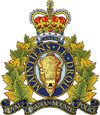 The fatal crash that occurred around 3:30 am in Langford town centre at Goldstream Avenue and Peatt Road remains under investigation, though it was implied that alcohol was a factor with the driver of the truck. Police may have been following the pickup truck before the accident occurred.
The fatal crash that occurred around 3:30 am in Langford town centre at Goldstream Avenue and Peatt Road remains under investigation, though it was implied that alcohol was a factor with the driver of the truck. Police may have been following the pickup truck before the accident occurred.
BC Premier Christy Clark issued a statement around 1 pm today, including: “My thoughts are with Cst Beckett’s colleagues in the RCMP, and especially with her husband and her two young children. Nothing anyone can say will ease their pain during such a dark time. In the years to come, I hope they will take comfort in the knowledge that their mother was a hero. Each and every day, police officers put themselves in harm’s way to keep the rest of us safe. We should all take the opportunity to thank them more often.”
Around noon Pacific time, Prime Minister Justin Trudeau tweeted his condolences: “On behalf of the government, I offer my condolences to the family of RCMP Const. Sarah Beckett, who was killed today in the line of duty.”
Langford Mayor Stew Young said on local TV news this evening that it’s the worst tragedy that’s happened in Langford in the 23 years that he’s been Mayor.
People are laying flowers in memorial outside the West Shore RCMP detachment. A book of condolences is available to sign, inside the detachment. Updates will be posted on the WEST SHORE LOCAL news page.
 FRI APRIL 1 ~ BC: Today April 1, 2016, rates for electricity sold to BC Hydro customers has increased by 4 per cent. Apparently that equates to an additional $4 per month for the average household.
FRI APRIL 1 ~ BC: Today April 1, 2016, rates for electricity sold to BC Hydro customers has increased by 4 per cent. Apparently that equates to an additional $4 per month for the average household.
BC Hydro’s five-year series of rate increases continues, with this year’s 4% increase coming into effect on the heels of the 9% increase at April 2014 and 6% increase at April 2015. Over the five-year spread of increases (2014-2018) rates will have increased by over 28%.
See more details below (see article posted March 27).
 THURS MARCH 31 ~ VANCOUVER: Recommendations for reducing the number of fatalities that occur on BC roadways were released today by the Office of the Provincial Health Officer, in a report called Where the Rubber Hits the Road: Reducing the Impact of Motor Vehicle Crashes on Health and Well-being in BC.
THURS MARCH 31 ~ VANCOUVER: Recommendations for reducing the number of fatalities that occur on BC roadways were released today by the Office of the Provincial Health Officer, in a report called Where the Rubber Hits the Road: Reducing the Impact of Motor Vehicle Crashes on Health and Well-being in BC.
In support of the BC Road Safety Strategy (first released in 2013 and further enhanced in January 2016), this report is looking for changes to roadways, legislation, and people’s behaviour in an overall strategy to reduce motor vehicle accident fatalities to zero.
Presenting the report to media today were Dr Perry Kendall, provincial health officer; Dr Bonnie Henry, Deputy Provincial Health Officer; Neil Arason, Manager, BC Road Safety Strategies, BC Ministry of Public Safety and Solicitor General; and Lisa LaPointe, Chief BC Coroner.
“Notable progress that has been made (compared to other jurisdictions) but we still have some distance to go to achieve this end,” said Dr Kendall about aiming to achieve zero fatalities from vehicle crashes.
“The goal is to achieve the safest roads in North America,” said Dr Henry. She said that “no one should die from a preventable cause on our roads in BC,” and that the report in particular addresses “the most vulnerable road users” as part of reaching that goal. “The focus of the recommendations is on “vulnerable road users” in order to “bring down the indicators for all”. She says BC should be encouraging walking, cycling, and public transportation as viable options to driving in vehicles.
Of the 28 recommendations, seven have to do with road safety strategy, said Dr Henry. She said that protecting pedestrians increases the efficiency of roads, and that collaboration of many different agencies is important to that end.
Dr Henry outlined the need to “start looking at an independent centre for excellence in road safety in BC” whereby researchers would have access to data. She said it was a “challenge to bring data together and link it and look at it in a comprehensive way” for the new report. Data in the report only goes up to 2013, she said. The proposed research centre with independent researchers would have access to data including behavioural, engineering, vehicles, etc and “how to get people to be safer in their use of roads”. She noted safety concerns regarding pedestrians, and elderly people who are still driving.
Extending required blood alcohol level is in the report’s recommendations. Release from the new driver program happens at about the same age that alcohol use is legal in BC. Other countries apparently require zero blood-alcohol content to age 21 or 25.
Dr Henry also said that there needs to be an improved capacity to identify impaired driving. She noted that the federal government is working to legalize marijuana, but that “we do not have good strategies to understand the effect on drivers”. In that same vein of impaired driving, Dr Henry mentioned the shortfalls in driving capacity for an aging population, saying the independence is supported but “how that may affect their ability to drive safely”.
For urban road ways, there is a recommendation that the default speed limit be 30 km per hour (compared to the present 50 km per hour). The speed of 30 km per hour was called “a survivable speed” by Dr Perry Kendall during the news conference, adding that municipalities would need to decide about this for their own communities. The speed limit could be higher in urban communities areas if there are medians and other protections for cyclists and pedestrians. “These strategies are effective if used with community support. Revenues from some of these programs go back into improving road safety,” said Dr Henry.
“Safe routes for cycling and walking can’t be over stated,” said Dr Henry. Drivers and how fast they are going competes with the needs of cyclists and pedestrians. “Protecting pedestrians increases the efficiency of the roads.”
This is the first-ever public health report devoted to road safety, it was noted by Neil Arason, Manager, BC Road Safety Strategies, BC Ministry of Public Safety and Solicitor General in his opening remarks. He called the release of the report a “milestone that signals the crucial attention that this topic deserves for public health”. “It’s clearly a public health issue — look at the number of people killed on the roads,” said Arason.
Existing BC road safety strategy was updated in January 2016, said Arason. The goal of “zero deaths on the road” requires “knowledge and innovations”, said Arason, noting that “the steps to get there are in the PHO report”.
 “Road injuries and deaths are a human-made problem with human-made solutions,” said Arason, who has also written a book No Accident: Eliminating Injury and Death on Canadian Roads that was released in 2014.
“Road injuries and deaths are a human-made problem with human-made solutions,” said Arason, who has also written a book No Accident: Eliminating Injury and Death on Canadian Roads that was released in 2014.
Arason said that BC can reduce road trauma. “We largely know what works and what doesn’t. Humans make mistakes, but we can design a road system that takes that into account.” He used, an example, that safety caps on pill bottles works better to keep children safe than reminders to parents. “Safe road system can do more than endless exortations to drive more safely,” said Arason.
The new way forward is to “get away from a silo’d approach, and move to: partnership, collaboration and health promotion,” said Arason. “That will help elevate road safety, from being ‘just accidents, with little we can do about them’ to “system failures that have solutions”.
 TUES MARCH 29 ~ VANCOUVER ISLAND: On Saturday evening, March 26, 2016 at 9:30 pm, the Sooke RCMP received a report of two men overdue from a fishing trip. They had departed from a boat launch in Port Renfrew, earlier that evening.
TUES MARCH 29 ~ VANCOUVER ISLAND: On Saturday evening, March 26, 2016 at 9:30 pm, the Sooke RCMP received a report of two men overdue from a fishing trip. They had departed from a boat launch in Port Renfrew, earlier that evening.
The coordinated search and rescue operation for these men has now been called off. The men, ages 34 and 51, both from Langford, are now considered missing persons. Sooke RCMP will continue to investigate.
“The men are thought to have gone down in rough waters while fishing in the Port Renfrew area,” says Sooke RCMP Detachment Commander S/Sgt Jeff McArthur.
 TUES MARCH 29 ~ OTTAWA. Prime Minister Justin Trudeau today announced that he will travel to Washington, DC to attend the 2016 Nuclear Security Summit, March 31 to April 1. Canada supports a strong multilateral framework for the global fight against nuclear terrorism – one of the gravest threats to international security, said a news release from the Prime Minister’s office today.
TUES MARCH 29 ~ OTTAWA. Prime Minister Justin Trudeau today announced that he will travel to Washington, DC to attend the 2016 Nuclear Security Summit, March 31 to April 1. Canada supports a strong multilateral framework for the global fight against nuclear terrorism – one of the gravest threats to international security, said a news release from the Prime Minister’s office today.
The 2016 Nuclear Security Summit aims to bring the international community together in order to combat the threat of nuclear terrorism around the globe. The Summit will provide a forum for world leaders to reinforce commitments, at the highest levels, to enhance the security of their nuclear and radiological materials and combat nuclear terrorism.
“We are committed to working with the international community to prevent nuclear terrorism – a very real social, political, economic, and environmental threat. We must take the necessary steps to enhance our collective security so that Canadians and others around the world can feel safe and free in their communities,.”– Rt. Hon. Justin Trudeau, Prime Minister of Canada
• The 2016 Nuclear Security Summit will be the fourth and final summit. It has been characterized as a ‘transition Summit’. It will focus on ensuring that the achievements of the Summit process are sustained and that work continues in the years ahead to strengthen the international nuclear security architecture. The first Nuclear Security Summit was held in Washington, DC in 2010, and was followed by additional Summits in Seoul in 2012 and The Hague in 2014.
SUN MARCH 27 ~ BC: BC Hydro rates are going up 4 per cent effective April 1, 2016. BC Hydro’s five-year series of rate increases continues, with a 4% increase coming into effect on Friday, April 1 on the heels of the 9% increase at April 2014 and 6% increase at April 2015. Over the five-year spread of increases (2014-2018) rates will have increased by over 28%. There appears to be no recognition of the increasing cost of living in almost every other sector of the economy, or how wages are stagnant or job losses are affecting people. It’s unlikely that home energy conservation can be much more effective for more households than it is already. This is burdens the average family who will probably need to find something else to cut back on.
| Date | Rate Increase (%) |
| April 1, 2014 | 9% |
| April 1, 2015 | 6% |
| April 1, 2016 | 4% |
| April 1, 2017 | 3.5% |
| April 1, 2018 | 3.% |
No doubt electricity demand is ‘here to stay’ and increasing, in a highly tech-saturated society where just about everything is plugged in, from appliances to smart tech devices, to electric vehicles. But the sudden hit of increases under the current BC Liberal government in 2014 and 2015, followed by the slow-drip increases of 2016-2018 is not a kind measure upon the BC residential electricity customer, and is effectively an indiscriminate tax burden.
The trickle-down effect is not subtle. As an example, school boards across the province must pay more every year to provide electricity in schools and administrative offices — money that ‘must be found in the budget elsewhere’ and does not go to teachers or supplies for classrooms. This impact families. Municipalities must pay more to light their streets and run their offices; they is shifted to the municipal taxpayer. This affects communities.
T he two-step residential rate is inappropriately promoted by BC Hydro as ‘encouraging conservation’. The point where Step 1 usage shifts to Step 2 is so low (Step 1 cuts off at 1,350 kWh), that few if any households would be able to ‘conserve’ (cut back) enough to avoid slipping into Step 2. Most appliances and electronics draw power 24/7 even when not in active use; easy pickings.
he two-step residential rate is inappropriately promoted by BC Hydro as ‘encouraging conservation’. The point where Step 1 usage shifts to Step 2 is so low (Step 1 cuts off at 1,350 kWh), that few if any households would be able to ‘conserve’ (cut back) enough to avoid slipping into Step 2. Most appliances and electronics draw power 24/7 even when not in active use; easy pickings.
Even if increases are required from a BC Budget perspective, the overall disregard for BC taxpayers cost-of-living in the outlay of BC Hydro rate increases should concern voters province-wide. The minimum wage increase coming September 15, 2016 won’t go far for many families, with all the cost increases of living in BC.
 SUN MARCH 27: Today is Easter Sunday.
SUN MARCH 27: Today is Easter Sunday.
Prime Minister Justin Trudeau issued a statement for Easter, including: “As we gather with those most important to us, let us put into practice what it truly means to love our neighbours as ourselves.”
BC Premier Christy Clark issued a statement for Easter, including: “No matter what your personal beliefs or faith may be, Easter weekend is an opportunity to spend more time with friends and loved ones. I wish all British Columbians a happy Easter Weekend.”
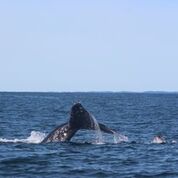 FRI MARCH 25 ~ VICTORIA: A University of Victoria (UVic)-led mission that will deepen knowledge of rare and threatened baleen whales and help protect them from ship strikes is underway off Flores Island in Clayoquot Sound, north of Tofino, BC. Over the next three weeks, a 2-metre underwater ocean glider equipped with acoustic sensors, sonar and hydrophones will allow researchers to track whale movements by listening to and recording their sounds along the shelf break in Clayoquot Canyon.
FRI MARCH 25 ~ VICTORIA: A University of Victoria (UVic)-led mission that will deepen knowledge of rare and threatened baleen whales and help protect them from ship strikes is underway off Flores Island in Clayoquot Sound, north of Tofino, BC. Over the next three weeks, a 2-metre underwater ocean glider equipped with acoustic sensors, sonar and hydrophones will allow researchers to track whale movements by listening to and recording their sounds along the shelf break in Clayoquot Canyon.
The BC project led by UVic geographer David Duffus, director of UVic’s Whale Research Lab, is part of the national WHaLE project (Whales, Habitat and Listening Experiment) which seeks to define whale habitat and develop, test and implement a near real-time “whale alert” system to reduce the risk of ship-whale collisions.
The project is funded by the Marine Environmental Observation Prediction and Response Network (MEOPAR) based at Dalhousie University in Nova Scotia. The multi-disciplinary team is focusing on ecologically sensitive whale habitats on the coast of Atlantic Canada and now off western Vancouver Island. Initial success has been met on the East Coast in known habitats of the critically endangered north Atlantic right whale.
 “Ocean gliders are a new technique for gaining insights into whale ecology on Canada’s West Coast,” says Duffus. “Many species of concern under Canada’s Species at Risk Act are termed ‘data deficient.’ We need more information on whale habitats and whale feeding ‘hot spots’ so we can put in protective measures, such as real time whale-alerts for shipping traffic.”
“Ocean gliders are a new technique for gaining insights into whale ecology on Canada’s West Coast,” says Duffus. “Many species of concern under Canada’s Species at Risk Act are termed ‘data deficient.’ We need more information on whale habitats and whale feeding ‘hot spots’ so we can put in protective measures, such as real time whale-alerts for shipping traffic.”
Large baleen whales—such as humpback, sei, blue and the very rare North Pacific right whale—are difficult to survey, mostly due to how much time they spend underwater far from land as they feed on tiny zooplankton and/or small fish. By listening for characteristic whale vocalizations, researchers will track the whales’ movements and distribution.
Since ocean gliders can monitor at night and in poor weather conditions, researchers will have more in-depth data to map baleen whale habitat and key feeding spots. The data will guide conservation efforts to protect whales from shipping traffic and noise in key marine locations.
The three-year WHaLE initiative is funded by MEOPAR with researchers at UVic and Dalhousie University and—for this mission—with support and/or collaborators from Ocean Tracking Network, UVic’s Ocean Networks Canada, the University of British Columbia, Fisheries and Oceans Canada (Pacific), and 17 other agencies (see complete list of partners).
 TUES MARCH 22 ~ national: The budget unveiled today by the federal Liberal government is packed with fulfilled promises, and a few significantly broken ones too. Strong on overall social safety net (long overdue) but lacking in support for small business (worrisome).
TUES MARCH 22 ~ national: The budget unveiled today by the federal Liberal government is packed with fulfilled promises, and a few significantly broken ones too. Strong on overall social safety net (long overdue) but lacking in support for small business (worrisome).
Political analysis coming in our March 25th weekly print/PDF edition of West Shore Voice News.
 SAT MARCH 19 ~ VICTORIA: AOE Accumulated Ocean Energy of Sooke, BC is pleased to announce the joining with the University of Victoria and the West Coast Wave Initiative through the funding programs of the Natural Resources Canada; Natural Sciences and Engineering Research Council of Canada and Collaborative Research Development Canada.
SAT MARCH 19 ~ VICTORIA: AOE Accumulated Ocean Energy of Sooke, BC is pleased to announce the joining with the University of Victoria and the West Coast Wave Initiative through the funding programs of the Natural Resources Canada; Natural Sciences and Engineering Research Council of Canada and Collaborative Research Development Canada.
“Since February 2013, AOE has diligently worked towards a design of an Ocean Wave Energy Conversion System (WEC) that will capture and withstand the power within our oceans. The design had to meet our mission statement of “No harm to any life in any manner”, says AOE Accumulated Ocean Energy’s CEO and CTO Jim Matei. [Photo taken at the West Coast Wave Initiative Centre at UVic, from left: Bryson Robertson, Jim Matei, Helen Bailey.]
While navigating the oceans of the world in some very extreme conditions, Matei grew a desire to harness that ocean energy and work towards a design of a Renewable Green Ocean Wave Energy Conversion system. While working with nature, keeping things simple and investigating many of the possibilities, Matei found the answer in using air compression and went on to write and acquire several patents. During a trip to Orkney, Scotland, where the Scottish government has been testing ocean energy devices since the 1980s, the AOE team studied the many ocean energy devices that had failed in both engineering and business design. With this insight, the AOE team was able to develop a successful engineering and business model for an Ocean Wave Energy Conversion (WEC) System and created the direction of AOE WEC development.
Working with the latest computer modeling systems, which have been created by doctoral graduates under the direction of Dr. Brad Buckham at the University of Victoria, Dr. Clayton Hiles and Dr. Scott Beatty of Victoria based Cascadia Coastal Research and along with Dr. Ryan Nicoll of Dynamic Systems Analysis provides the opportunity to use science to design, engineer and develop Ocean Wave Energy Systems capable of capturing the immense power of the ocean and increasing the survivability of the WEC systems.
An understanding of computer design and simulation was gained when Matei worked for many years with Caterpillar participating in the development of large mining equipment such a monster mining haul trucks. These trucks are first designed and built in a computer modeling system and then virtually run in the simulated environment. This computer modeling process allows a cost effective environment for development rather than the old school of wishful building something and hoping it works. Computer modeling used by Caterpillar allows the mining haul truck to perform to expectations within computer modeling and then once the design is achieved, it is then sent out to CNC machining, welding and tooling and the actual truck is then built and brought into reality for further testing. Once further testing has been completed in an actual mining environment, the haul truck is then sold into a commercial mining market.
This is the same program concept that AOE Accumulated Ocean Energy along with the University of Victoria / West Coast Wave Initiative and Victoria based mechanical and ocean engineering contractors have applied to achieve the science and design level of a system which is now moving one step closer to reality. The Canadian Government through the Natural Resources Canada funding programs has made it possible for Canadian companies such as AOE Accumulated Ocean Energy to lead the way to provide the world with ‘Clean Green Renewable Ocean Wave Energy’.
The lead proponent is the University of Victoria. The total project cost listed by Natural Resources Canada. “The 11.5 year hindcast of wave conditions, with 3-hour resolution, off the West Coast of Vancouver Island, has been shown to provide superior performance against all previous models and has generated interest internationally, federally and provincially,” says NRC.
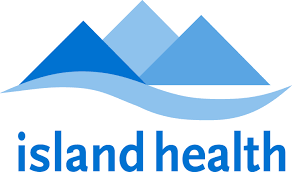 FRI MARCH 18 ~ GULF ISLANDS: Island Health posted a boil water notice for the Lyall Harbour – Boot Cove Water System on Saturna Island yesterday, and it remains in place today. A positive test result for E.Coli had been found.
FRI MARCH 18 ~ GULF ISLANDS: Island Health posted a boil water notice for the Lyall Harbour – Boot Cove Water System on Saturna Island yesterday, and it remains in place today. A positive test result for E.Coli had been found.
 The Drinking Water Officer, in consultation with the Medical Health Officer, recommends the following steps be taken to minimize the risks associated with this water system. Boil water advisory to be in effect until the results from the water sampling analysis meet the drinking water standards. A handout with further information has been provided, including that “during this Boil Water Advisory, household tap water may be disinfected by boiling it vigorously for 1 minute”.
The Drinking Water Officer, in consultation with the Medical Health Officer, recommends the following steps be taken to minimize the risks associated with this water system. Boil water advisory to be in effect until the results from the water sampling analysis meet the drinking water standards. A handout with further information has been provided, including that “during this Boil Water Advisory, household tap water may be disinfected by boiling it vigorously for 1 minute”.
“This notice remains in effect until another public notice is issued by the Drinking Water Officer advising that the Notice has been rescinded,” says the Capital Regional District (CRD) which promoted the advisory yesterday.
THURS MARCH 17 ~ EVERYWHERE that ANYONE wants to be IRISH: Happy St Patrick’s Day!
 THURS MARCH 17: BC Ferries reminds travelers that extra sailings will be available during the Easter Long Weekend. From March 24 to March 28 (note: Good Friday is March 25 & Easter Sunday is March 27), extra sailings are scheduled for the Tsawwassen – Swartz Bay, Horseshoe Bay – Departure Bay and Horseshoe Bay – Langdale routes to accommodate additional traffic over the Easter long weekend. The schedule for the Earls Cove – Saltery Bay route has been adjusted to align with the additional sailings on the Horseshoe Bay – Langdale route and can be viewed at www.bcferries.com/schedules . The extra sailings:
THURS MARCH 17: BC Ferries reminds travelers that extra sailings will be available during the Easter Long Weekend. From March 24 to March 28 (note: Good Friday is March 25 & Easter Sunday is March 27), extra sailings are scheduled for the Tsawwassen – Swartz Bay, Horseshoe Bay – Departure Bay and Horseshoe Bay – Langdale routes to accommodate additional traffic over the Easter long weekend. The schedule for the Earls Cove – Saltery Bay route has been adjusted to align with the additional sailings on the Horseshoe Bay – Langdale route and can be viewed at www.bcferries.com/schedules . The extra sailings:
• 42 extra sailings on Tsawwassen – Swartz Bay route
• 10 extra sailings on Horseshoe Bay – Departure Bay route
• 6 extra sailings on the Horseshoe Bay – Langdale route
The most popular travel times are expected to be mid-day Thursday to late morning Friday with traffic moving from Metro Vancouver to Vancouver Island and the Sunshine Coast. The holiday Monday afternoon (March 28) is expected to be busy with traffic returning to Metro Vancouver.
“We understand the Easter long weekend is a busy travel time and want to ensure customers are aware of the additional sailings as well as the peak travel times,” said Corrine Storey, Vice President of Customer Services. BC Ferries. “We have reviewed traffic patterns and planned our additional sailings accordingly, but do encourage customers with a specific sailing in mind to consider making a reservation in order to ensure their travel plans.”
 SAT MARCH 12: Tonight before bed is a great time to set your clocks forward by one hour if your part of the country follows Daylight Savings Time. The actual spring-forward time is 2:00 am on Sunday morning, March 13.
SAT MARCH 12: Tonight before bed is a great time to set your clocks forward by one hour if your part of the country follows Daylight Savings Time. The actual spring-forward time is 2:00 am on Sunday morning, March 13.
Computers and smart-technology usually change the time automatically, so that just leaves wall clocks, some microwaves, clocks in older cars, and maybe the odd clock tower or two to be changed manually!
In recent months, there has been renewed interest in the possible detriment of fiddling with people’s circadian rhythms when the clocks go forward and back, including documentation of more car accidents. It may cause missed appointments or even problems with sleep patterns and insomnia.
A petition online launched last fall by Bob Dieno of Kamloops, BC achieved several thousand signatures asking to have Daylight Savings Time cancelled in BC. He cited increased traffic collisions for up to one week after clocks are turned forward or back. “Our original goal was 10,000 signatures (which we reached in early Nov 2015) but in meetings with Honorable Ministers Terry Lake (Health) and Todd Stone (Transportation) they suggested we have at least 30,000 on the petition,” says Dieno. There are presently 24,714 signatures on the online petition.
 THURS MARCH 10 ~ VICTORIA: BC Ferries reminds customers that a major fleet-wide pricing promotion of 30% savings on passenger fares starts today. All passengers travelling on select sailings from March 10 to 29 will receive the discount off the regular passenger fares, which is great news for families planning spring break getaways.
THURS MARCH 10 ~ VICTORIA: BC Ferries reminds customers that a major fleet-wide pricing promotion of 30% savings on passenger fares starts today. All passengers travelling on select sailings from March 10 to 29 will receive the discount off the regular passenger fares, which is great news for families planning spring break getaways.
The promotional discount is applicable on adult, child, BC Senior, student and persons with disabilities regular passenger fares. On South Coast routes, the 30% discount will be in effect Monday through Thursday and Saturdays on select sailings from March 10 to 29. On North Coast routes including Port Hardy – Prince Rupert, Prince Rupert – Haida Gwaii and Alliford Bay – Skidegate routes as well as the Discovery Coast connector, the 30% discount will apply on every sailing March 10 to 29.
Experience™ Card users who receive a year-round discount that is less than 30% will have their discount increased to match the promotional fare on promotional sailings. Experience™ Card users who receive a year-round discount that is in excess of 30 per cent will remain at their current discount level. This promotion allows those customers who do not participate in the Experience™ Card program an opportunity to travel at a discounted rate. Info: www.bcferries.com
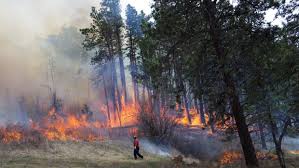 THURS MARCH 10 ~ VICTORIA: Today the BC Government introduced much stiffer fines under the Wildfire Act. Proposed legislative amendments introduced today as part of the Forests, Lands and Natural Resource Operations Statutes Amendment Act (Bill 12) include provisions aimed specifically at people who interfere with firefighting efforts in British Columbia.
THURS MARCH 10 ~ VICTORIA: Today the BC Government introduced much stiffer fines under the Wildfire Act. Proposed legislative amendments introduced today as part of the Forests, Lands and Natural Resource Operations Statutes Amendment Act (Bill 12) include provisions aimed specifically at people who interfere with firefighting efforts in British Columbia.
Additional legislative changes will result in significantly increased ticket fines for 19 different violations under the Wildfire Act and for seven different violations under Wildfire Regulation. These changes mean that BC now has some of the highest wildfire-related violation ticket fines in the country.
For example, the fine for failing to comply with a fire restriction under the Wildfire Act is increasing from $345 (including a $45 victim surcharge) to $1,150 (including a $150 victim surcharge). This represents a 333.33% increase over the old fine for that offence.
In addition, Bill 12 clarifies what is considered to be “interference”, in terms of actions that could hinder firefighters. The proposed amendments would also clarify that interference does not have to be intentional to constitute a contravention of the Wildfire Act.* The proposed amendments to the Wildfire Act would strengthen compliance and enforcement provisions by establishing an offence and penalties of up to $100,000 and/or imprisonment for up to one year for failing to comply with a stop work order.
On average, 3% to 40% of wildfires in British Columbia are caused by people. The 2015 fire season was one of the busiest and most expensive in recent years, with over 283,400 hectares burned and over $278 million spent on wildfire management, the Ministry of Forests, Lands and Natural Resource Operations reported today.
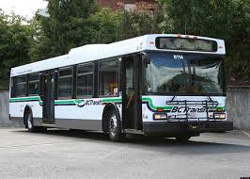 WED MARCH 9 ~ GREATER VICTORIA AREA: Bus fares are going up in the Greater Victoria area – but just for youth and seniors. If adults buy a sheet of 10 tickets, the cost per ticket is lower than the adult single cash fare (same as before).
WED MARCH 9 ~ GREATER VICTORIA AREA: Bus fares are going up in the Greater Victoria area – but just for youth and seniors. If adults buy a sheet of 10 tickets, the cost per ticket is lower than the adult single cash fare (same as before).
The fare increases will come into effect on Friday, April 1. BC Transit says there hasn’t been a fare increase for three years. See full article and all rate details.
![]() WED MARCH 9 ~ WEST SHORE / VANCOUVER ISLAND: “Strong winds that may cause damage are expected or occurring, it was issued by Environment Canada this morning, March 9. “Winds up to 70 km/h will occur overnight and into Thursday morning as a strong cold front crosses Vancouver Island. The threat of strong winds will pass by noon on Thursday. Damage to buildings, such as to roof shingles and windows, may occur. High winds may toss loose objects or cause tree branches to break.”
WED MARCH 9 ~ WEST SHORE / VANCOUVER ISLAND: “Strong winds that may cause damage are expected or occurring, it was issued by Environment Canada this morning, March 9. “Winds up to 70 km/h will occur overnight and into Thursday morning as a strong cold front crosses Vancouver Island. The threat of strong winds will pass by noon on Thursday. Damage to buildings, such as to roof shingles and windows, may occur. High winds may toss loose objects or cause tree branches to break.”
A Wind Warning is issued by Environment Canada when winds are expected to be 70 km/h or higher of sustained wind and/or gusts to 90 km/h or more.
Specifically for Sooke weather, The Weather Network indicates winds reaching around 50 km/h tonight and into Thursday. Heavy rainfall began around 2 pm this afternoon (Pacific Time). Due to wind (onto trees/lines), early this afternoon 874 BC Hydro customers lost power in the West Coast Road area and In the Connie Road area about 5 customers are without power (last update 4:45 pm). Around 4:25 pm, about 198 BC Hydro customers lost power in the Phillips Road / Sunriver area. At 5:54 pm, about 125 customers lost power in the Belvista/Sea Lion Way area. By 10pm, it seems most of the wind has passed through the Sooke area, but most of the outages are not yet resolved.
For Langford weather, winds are forecasted to be around 30 km/h during this storm. There were no power outages in the Langford area midday but as of 8:43 pm there were 2,266 BC Hydro customers without power in Langford/Colwood.
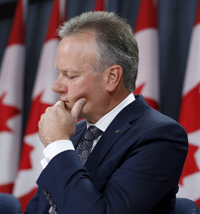 WED MARCH 9 ~ OTTAWA: Today the Bank of Canada announced it is holding the benchmark rate steady at 0.5% for the fifth time in a row. It is likely that Bank of Governor Stephen Poloz who made the announcement today is waiting for the Liberal government infrastructure spending to kick in with the 2016 Budget (being announced March 22).
WED MARCH 9 ~ OTTAWA: Today the Bank of Canada announced it is holding the benchmark rate steady at 0.5% for the fifth time in a row. It is likely that Bank of Governor Stephen Poloz who made the announcement today is waiting for the Liberal government infrastructure spending to kick in with the 2016 Budget (being announced March 22).
The Bank says it “judges that the overall balance of risks remains within the zone for which the current stance of monetary policy is appropriate,” and is thus keeping the benchmark at 0.5%. The prime rate at major banks is 2.7%.
“The low level of oil prices will continue to dampen growth in Canada and other energy-producing countries,” but “Canada’s GDP growth in the fourth quarter was not as weak as expected,” it was stated today by Poloz. He said that global growth is expected to strengthen this year and next, and expansion of the US economy remains broadly on track. Apparently inflation in Canada is evolving as anticipated.
Photo Web Source – Reuters
 WED MARCH 9 ~ WEST SHORE: It’s school budget season. The SD62 Sooke School Board met last night for several hours of in-camera meetings, plus a 1.5-hour public board meeting. The budget for 2016-2017 is the board’s main focus from now until final completion before the end of April. An enrolment increase is projected for 2016-2017 based on increased housing availability primarily in the Langford and Colwood areas.
WED MARCH 9 ~ WEST SHORE: It’s school budget season. The SD62 Sooke School Board met last night for several hours of in-camera meetings, plus a 1.5-hour public board meeting. The budget for 2016-2017 is the board’s main focus from now until final completion before the end of April. An enrolment increase is projected for 2016-2017 based on increased housing availability primarily in the Langford and Colwood areas.
Among increased costs will be an additional $41,000 payable to BC Hydro in next year’s budget, as well as MSP premium increases payable for SD62 personnel. This is money not going directly to classrooms.
Full article on the West Shore regional page.
 TUES MARCH 8 ~ SOOKE. Sooke RCMP continue to deal with a rise in thefts from motor vehicles. Generally investigators divide these into two categories – glass break TFO (theft from auto) and unlocked TFO. Arrests have been made in regard to these crimes, and Sooke RCMP investigators continue to target those known to be responsible, says Detachment Commander S/Sgt Jeff McArthur.
TUES MARCH 8 ~ SOOKE. Sooke RCMP continue to deal with a rise in thefts from motor vehicles. Generally investigators divide these into two categories – glass break TFO (theft from auto) and unlocked TFO. Arrests have been made in regard to these crimes, and Sooke RCMP investigators continue to target those known to be responsible, says Detachment Commander S/Sgt Jeff McArthur.
Yesterday (March 7), Sooke officers and support staff dealt with six reports of thefts from motor vehicles from various locations in Sooke. All of these cars –despite all the recent publicity about the increase in these types of thefts — were left unlocked. Vehicles that were in act locked in these areas were not broken into. In one case, a vehicle was left unlocked, with the keys for the vehicle inside — upon finding the keys the suspect stole the car. The vehicle was located by officers on patrol, and the suspect arrested, and held in custody.
Under the Motor Vehicle Act it is an offence to leave your vehicle unlocked. Sooke RCMP are again asking the residents of Sooke to remove valuables from their vehicles when parked over night, and to lock and alarm their vehicles.
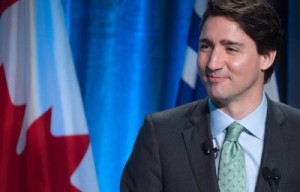 TUES MARCH 8 ~ NATIONAL. Prime Minister Justin Trudeau today issued the following statement on the occasion of International Women’s Day:“On this special day, we celebrate the many achievements of women in Canada – and around the world – and we reaffirm our commitment to gender equality. While we have made enormous progress towards equality over the years, we know that we still have a lot of hard work to do. Far too many women and girls continue to face injustices and discrimination. It is unacceptable that in 2016, women are still denied an education, forced into an early marriage, or made victims of gender-based violence.”
TUES MARCH 8 ~ NATIONAL. Prime Minister Justin Trudeau today issued the following statement on the occasion of International Women’s Day:“On this special day, we celebrate the many achievements of women in Canada – and around the world – and we reaffirm our commitment to gender equality. While we have made enormous progress towards equality over the years, we know that we still have a lot of hard work to do. Far too many women and girls continue to face injustices and discrimination. It is unacceptable that in 2016, women are still denied an education, forced into an early marriage, or made victims of gender-based violence.”
“As leaders, as parents, as community members, upholding women’s rights should be – and must be – a priority for us all. Canada’s theme for this year‘s International Women’s Day – Women’s Empowerment Leads to Equality – reminds us that we all benefit when women and girls have the opportunities and the resources they need to succeed. We remain committed to advancing gender equality, so that Canada can become a country where all women and girls can reach their full potential.”
“Today, I encourage all Canadians to join me in celebrating International Women’s Day. I also urge you to take part in the Government of Canada #YouAreEmpowerment campaign to honour a woman who has inspired you.”
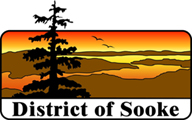 MON MARCH 7 ~ SOOKE. Toughening up the rules or catching up with the times? The jury is still out as to whether District of Sooke Council is opening up public debate or containing it further.There could be more input allowed from the public, but in a more structured manner. General guidelines were introduced tonight, with more details to come on March 14. See full article on SOOKE news page.
MON MARCH 7 ~ SOOKE. Toughening up the rules or catching up with the times? The jury is still out as to whether District of Sooke Council is opening up public debate or containing it further.There could be more input allowed from the public, but in a more structured manner. General guidelines were introduced tonight, with more details to come on March 14. See full article on SOOKE news page.
 SUN MARCH 6 ~ USA. A US TV-watching audience of probably about 10 million people will provide ‘rock star’ exposure to Canadian Prime Minister Justin Trudeau tonight on the CBS news magazine show 60 Minutes.A blurb on the CBS website calls Trudeau “a scion of Canadian political royalty” from a family often compared to the Kennedys in the US.
SUN MARCH 6 ~ USA. A US TV-watching audience of probably about 10 million people will provide ‘rock star’ exposure to Canadian Prime Minister Justin Trudeau tonight on the CBS news magazine show 60 Minutes.A blurb on the CBS website calls Trudeau “a scion of Canadian political royalty” from a family often compared to the Kennedys in the US.
In his interview, Trudeau defends bringing in Syrian refugees and says that building walls is not a way to engender positive politics.
The interview precedes the visit of Prime Minister Trudeau and his wife Sophie Grégoire-Trudeau to Washington, DC this coming week, where they will be guests at a State Dinner at the White House on Thursday night, March 10. Prime Minister Trudeau will make a joint press conference with US President Barack Obama earlier that day, where ‘announceables’ are likely to be along the lines of environmentalism and dealing with climate change.
The one-hour 60 Minutes show airs at 7 pm (Pacific Time) tonight Sunday March 6 (Cable Ch 14 in the Greater Victoria area).
 THURS MARCH 3 ~ VICTORIA. Camping reservations open on March 15. Camping season is about to open in BC Parks, with the Discover Campingwww.discovercamping.ca reservation system opening on Tuesday, March 15 (7am), said the BC Ministry of Environment in a news release today.Discover Camping will begin accepting reservations for most campgrounds. Individual camping sites in many provincial parks can be booked up to three months in advance through the website or through the call centre (1-800-689-9025; $5 surcharge). Discover Camping is smartphone-friendly.
THURS MARCH 3 ~ VICTORIA. Camping reservations open on March 15. Camping season is about to open in BC Parks, with the Discover Campingwww.discovercamping.ca reservation system opening on Tuesday, March 15 (7am), said the BC Ministry of Environment in a news release today.Discover Camping will begin accepting reservations for most campgrounds. Individual camping sites in many provincial parks can be booked up to three months in advance through the website or through the call centre (1-800-689-9025; $5 surcharge). Discover Camping is smartphone-friendly.
New for the 2016 camping season, families can now reserve campsites in Dry Gulch, Inland Lake and Okanagan Falls provincial parks. There are also reservable campsites at Ruckle Provincial Park, as well as two new group camping sites at Syringa and Kootenay Lake provincial parks. For more adventurous campers there are two small rustic trapper’s cabins in Wells Gray Provincial Park that are reservable for the first time this year.
Groups can also now book picnic spots at Summit Lake, Ten Mile Lake, Lac La Hache and Green Lake provincial parks. Although individual campsite reservations don’t open until March 15, 2016 all inventory for 2016 will be visible on the Discover Camping website at 9 am on Wednesday, March 9. On March 9, new group sites can be booked (all group sites are reservable up to 12 months in advance).
Discover Camping displays the availability, layout and amenities of 122 campgrounds – showcasing more than 5,800 campsites throughout BC. Approximately half of all BC Parks camping opportunities remain on a first-come, first-served basis.
In 2015, more than 158,000 reservations were made through Discover Camping – an increase of almost 19% over 2014. Of all reservations in 2015, 73% originated from within BC. Parking is free in all provincial parks.
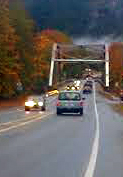 THURS MARCH 3 ~ WEST SHORE: Bridge-washing season is coming up soon. Annual bridge washing will be done mid-March to mid-April along Hwy 14 between Metchosin and Port Renfrew, as well as in Duncan and along the Pacific Marine Circle Route. See more on the West Shore page | Sooke page.
THURS MARCH 3 ~ WEST SHORE: Bridge-washing season is coming up soon. Annual bridge washing will be done mid-March to mid-April along Hwy 14 between Metchosin and Port Renfrew, as well as in Duncan and along the Pacific Marine Circle Route. See more on the West Shore page | Sooke page.
 THURS MARCH 3 ~ VICTORIA. British Columbia residents who are making an effort to lead healthier lifestyles can now be rewarded with loyalty points such as Aeroplan, PetroPoints, Scene and MoreRewards, thanks to an innovative new mobile app called Carrot Rewards.
THURS MARCH 3 ~ VICTORIA. British Columbia residents who are making an effort to lead healthier lifestyles can now be rewarded with loyalty points such as Aeroplan, PetroPoints, Scene and MoreRewards, thanks to an innovative new mobile app called Carrot Rewards.
Users across the province who sign up for Carrot Rewards will be able to earn their choice of leading, brand-name loyalty points for completing activities centered on making healthier lifestyle choices. This can include anything from completing a health profile, to participating in learning activities and quizzes, and in later phases will include activities like going to the gym, visiting a flu clinic, or buying produce from the grocery store.
Carrot Rewards is delivered through a partnership between the Public Health Agency of Canada, the B.C. Ministry of Health, Social Change Rewards, the Heart and Stroke Foundation, the Canadian Diabetes Association, and YMCA Canada. The app works on smartphones and is available free of charge on iTunes and Google Play, or by visiting: http://www.carrotrewards.ca
 THURS MARCH 3 ~ VANCOUVER. Trudeau met with indigenous leaders ahead of meeting with provincial premiers. “Climate change is the greatest collective challenge we face as a nation,” said Prime Minister Trudeau yesterday in a news release out of Vancouver. He is in Vancouver this week for the Globe Series – Business Innovation for the Planet, and to meet with provincial premiers to try hammering out a carbon tax and to promote green technology as a balancing factor to the resource industry.
THURS MARCH 3 ~ VANCOUVER. Trudeau met with indigenous leaders ahead of meeting with provincial premiers. “Climate change is the greatest collective challenge we face as a nation,” said Prime Minister Trudeau yesterday in a news release out of Vancouver. He is in Vancouver this week for the Globe Series – Business Innovation for the Planet, and to meet with provincial premiers to try hammering out a carbon tax and to promote green technology as a balancing factor to the resource industry.
“Today’s meeting affirmed that our leaders, from coast to coast to coast, we will stand together in their passion and commitment to tackling climate change and growing the economy. We will work collaboratively with First Nations, Inuit, and Métis across the country to ensure a more sustainable and prosperous future for Canada.”
 WED MARCH 2 ~ VANCOUVER. $75 million to Federation of Canadian Municipalities and $50 investment in building codes to improve climate resilience.Prime Minister Justin Trudeau today announced the Government of Canada’s commitment to invest in two initiatives “that will give Canadian cities and towns the tools they need in order to reduce emissions and adapt to a changing climate”. [Photo by Canadian Press, March 2, 2016, at Globe Conference].“Innovation and adaptation are vital to create clean jobs, grow our economy, and protect our environment,” the Prime Minister’s office stated in a news release today. “The GLOBE 2016 conference demonstrates the important role that businesses, governments, and investors will play in Canada’s transition to a low-carbon economy that provides good jobs and great opportunities for Canadians. To get there, Canada must make smart, strategic investments in clean growth and new infrastructure. Retooling our economy for this era of change will require new thinking and innovation.”
WED MARCH 2 ~ VANCOUVER. $75 million to Federation of Canadian Municipalities and $50 investment in building codes to improve climate resilience.Prime Minister Justin Trudeau today announced the Government of Canada’s commitment to invest in two initiatives “that will give Canadian cities and towns the tools they need in order to reduce emissions and adapt to a changing climate”. [Photo by Canadian Press, March 2, 2016, at Globe Conference].“Innovation and adaptation are vital to create clean jobs, grow our economy, and protect our environment,” the Prime Minister’s office stated in a news release today. “The GLOBE 2016 conference demonstrates the important role that businesses, governments, and investors will play in Canada’s transition to a low-carbon economy that provides good jobs and great opportunities for Canadians. To get there, Canada must make smart, strategic investments in clean growth and new infrastructure. Retooling our economy for this era of change will require new thinking and innovation.”
 Called “an important first step” Trudeau announced $75 million in new funding to the Federation of Canadian Municipalities (FCM) to help local governments reduce emissions and build climate resiliency at the municipal level. The Government of Canada will also invest $50 million to improve climate resilience in building and infrastructures codes across Canada.
Called “an important first step” Trudeau announced $75 million in new funding to the Federation of Canadian Municipalities (FCM) to help local governments reduce emissions and build climate resiliency at the municipal level. The Government of Canada will also invest $50 million to improve climate resilience in building and infrastructures codes across Canada.
Taken together, these measures are aimed at reducing greenhouse gas emissions, enhancing the life cycle of public and private infrastructure projects—including buildings, bridges, roads, and water and wastewater utilities—and ensuring the long-term sustainability of Canadian communities.
“Going forward, new growth will be clean growth. The future is happening now, and Canada needs to be a part of it,” the release said.
 WED MARCH 2 ~ SOOKE. Local Sooke resident Sara John Fowler will receive a Governor General’s Caring Canadian Award in a ceremony in Vancouver on Friday, March 4. The award will be presented by Canada’s Governor General David Johnston at a large event at the Chan Centre on the UBC Campus. Read full article on Sooke local news page
WED MARCH 2 ~ SOOKE. Local Sooke resident Sara John Fowler will receive a Governor General’s Caring Canadian Award in a ceremony in Vancouver on Friday, March 4. The award will be presented by Canada’s Governor General David Johnston at a large event at the Chan Centre on the UBC Campus. Read full article on Sooke local news page
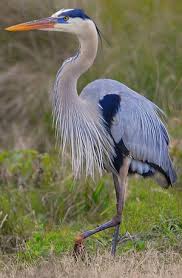 WED MARCH 2 ~ SOOKE. Public input produces results for central and under-utilized park in Sooke, focussing on public access and respecting nature-in-place. The District of Sooke Parks & Trails Advisory Committee has voted to recommend to Council the top 3 public-input options for John Phillips Memorial Park. Those top picks are: public washroom, loop trail around the park, and picnic tables and benches. At their committee meeting yesterday, March 1, there was a unanimous decision to back those three features for the long-neglected park on Otter Point Road. The park is primarily flanked by residential, with nearby light commercial. Committee chair John Boquist seemed pleased at the result. Read full article on Sooke local news page
WED MARCH 2 ~ SOOKE. Public input produces results for central and under-utilized park in Sooke, focussing on public access and respecting nature-in-place. The District of Sooke Parks & Trails Advisory Committee has voted to recommend to Council the top 3 public-input options for John Phillips Memorial Park. Those top picks are: public washroom, loop trail around the park, and picnic tables and benches. At their committee meeting yesterday, March 1, there was a unanimous decision to back those three features for the long-neglected park on Otter Point Road. The park is primarily flanked by residential, with nearby light commercial. Committee chair John Boquist seemed pleased at the result. Read full article on Sooke local news page
 WED MARCH 2 ~ VICTORIA –Improvements for pets on BC Ferries vessels! The Queen of Oak Bay BC Ferries vessel recently returned to service after the completion of its three-quarter life upgrade at BC Ferries’ in-house fleet maintenance unit in Richmond, says BC Ferries in a news release today. The 1981-built vessel serves the Horseshoe Bay – Departure Bay route and has had significant upgrades to its pet areas and many other areas of the ship. Other vessels in the fleet will have pet-area improvements made as well including recent upgrades on the Coastal Renaissance, Queen of Alberni and Queen of Cowichan. The Queen of New Westminster, Queen of Cumberland, Spirit of Vancouver Island and Spirit of British Columbia will have upgraded pet areas by this spring.Other upgrades to the Queen of Oak Bay include replacement of the steering gear system, upgrades to the bridge and refurbished passenger accommodations. These improvements include an expansion of Passages Giftshop with change rooms, total refresh of the Coast Café Express, the addition of a family room and additional power outlets with USB ports. To assist customers with hearing impairments, BC Ferries has installed an induction loop hearing system on this vessel. This will be the new standard for the fleet going forward.After receiving feedback from customers travelling with pets, BC Ferries reached out to the Society of British Columbia Veterinarians for some guidance on how best to make on board improvements. As a result, there is “a new standard for pet areas” including kennels to enable customers to leave their pets and enjoy the on-board amenities, radiant heating, comfortable benches as well as pet and pet owner hygiene products. In addition, the upgraded pet areas are to include new PA speakers to ensure important safety announcements can be heard. BC Ferries worked in conjunction with the Canadian Veterinary Medical Association on the process to design the improved pet areas. For more information about travelling with pets visithttp://www.bcferries.com/travel_planning/travel-with-pets .
WED MARCH 2 ~ VICTORIA –Improvements for pets on BC Ferries vessels! The Queen of Oak Bay BC Ferries vessel recently returned to service after the completion of its three-quarter life upgrade at BC Ferries’ in-house fleet maintenance unit in Richmond, says BC Ferries in a news release today. The 1981-built vessel serves the Horseshoe Bay – Departure Bay route and has had significant upgrades to its pet areas and many other areas of the ship. Other vessels in the fleet will have pet-area improvements made as well including recent upgrades on the Coastal Renaissance, Queen of Alberni and Queen of Cowichan. The Queen of New Westminster, Queen of Cumberland, Spirit of Vancouver Island and Spirit of British Columbia will have upgraded pet areas by this spring.Other upgrades to the Queen of Oak Bay include replacement of the steering gear system, upgrades to the bridge and refurbished passenger accommodations. These improvements include an expansion of Passages Giftshop with change rooms, total refresh of the Coast Café Express, the addition of a family room and additional power outlets with USB ports. To assist customers with hearing impairments, BC Ferries has installed an induction loop hearing system on this vessel. This will be the new standard for the fleet going forward.After receiving feedback from customers travelling with pets, BC Ferries reached out to the Society of British Columbia Veterinarians for some guidance on how best to make on board improvements. As a result, there is “a new standard for pet areas” including kennels to enable customers to leave their pets and enjoy the on-board amenities, radiant heating, comfortable benches as well as pet and pet owner hygiene products. In addition, the upgraded pet areas are to include new PA speakers to ensure important safety announcements can be heard. BC Ferries worked in conjunction with the Canadian Veterinary Medical Association on the process to design the improved pet areas. For more information about travelling with pets visithttp://www.bcferries.com/travel_planning/travel-with-pets .
“We recognize the importance of comfort and amenities for our customers travelling with pets, so we undertook a review of all our pet areas to identify the improvements needed and make them a priority during refit season,” said Corrine Storey, Vice President of Customer Services, BC Ferries. “These new upgrades will improve the travel experience not only for our customers, but for our furry friends as well.”
“We were approached by BC Ferries to help improve the transportation of pets aboard the ferry fleet,” said Dr. Rob Ashburner of the Society of British Columbia Veterinarians (SBCV). “We’ve been working with personnel from BC Ferries on the design and maintenance ofpet-friendly areas aboard the ferries and in developing policies and procedures for the safe transport of pets on the ships.”
 TUES MARCH 1 ~ VICTORIA. An investment of $5 million to Ocean Networks Canada was announced by the BC Ministry of Transportation & Infrastructure (MOTI) and Emergency Management BC on February 29, to increase the development and use of earthquake early warning systems in BC. The investment “could enhance life safety for British Columbians living in areas of the province with seismic risk,” it was stated in a news release. The one-time project funding will add more offshore strong motion sensors and help integrate them with land-based sensors for more robust collection and analysis of seismic activity, with the aim of contributing to early detection and notification tools for the public.
TUES MARCH 1 ~ VICTORIA. An investment of $5 million to Ocean Networks Canada was announced by the BC Ministry of Transportation & Infrastructure (MOTI) and Emergency Management BC on February 29, to increase the development and use of earthquake early warning systems in BC. The investment “could enhance life safety for British Columbians living in areas of the province with seismic risk,” it was stated in a news release. The one-time project funding will add more offshore strong motion sensors and help integrate them with land-based sensors for more robust collection and analysis of seismic activity, with the aim of contributing to early detection and notification tools for the public.
Ocean Networks Canada currently collects data from offshore and coastal strong motion sensors that will link into networks of land based sensors from other agencies including those owned by MOTI, Natural Resources Canada and the University of British Columbia. Our investment looks to bolster the integrated network of earthquake sensors, increase the reliability and effectiveness of the data and analysis that comes from them, feed it to a centralized source that in turn can immediately deliver early detection notifications prior to the arrival of the damaging waves of an earthquake.
 Primary wave (P-wave) sensors detect the first movements from the earth’s crust when an earthquake occurs. These first non-damaging waves are followed by secondary waves (S-waves), which cause the majority of shaking. The ability to quickly detect the P-waves can provide seconds of advance warning before the arrival of the S-waves. The effectiveness of the detection tool depends on having enough sensors and reliable communication infrastructure to get accurate information out quickly, as well as the distance from the quake’s epicentre to the recipients of the warning. This funding helps provide more P-wave sensors and precise GPS receivers.
Primary wave (P-wave) sensors detect the first movements from the earth’s crust when an earthquake occurs. These first non-damaging waves are followed by secondary waves (S-waves), which cause the majority of shaking. The ability to quickly detect the P-waves can provide seconds of advance warning before the arrival of the S-waves. The effectiveness of the detection tool depends on having enough sensors and reliable communication infrastructure to get accurate information out quickly, as well as the distance from the quake’s epicentre to the recipients of the warning. This funding helps provide more P-wave sensors and precise GPS receivers.
Ocean Networks Canada will install three more P-wave sensors in the Cascadia Basin, Barkley Canyon and Clayoquot Slope regions and five more along the coast of northern Vancouver Island to help test and refine the earthquake early warning system they have developed. To help reduce the likelihood of issuing false notifications, a minimum of three sensors need to be triggered by a seismic event. This one-time funding will support the development of a more effective and reliable notification system by increasing the number of sensors that comprise the network.
“I urge British Columbians to personally invest and contribute to our resilience by ensuring they have the plans and supplies to survive a minimum of 72 hours after a damaging quake rocks us,” says Naomi Yamamoto, BC Minister of State for Emergency Preparedness. On Vancouver Island, the general wisdom is to prepare for seven days of self reliance, given the time it would take for services and supplies to be up and running again on the island.
Other links: Basic emergency kit supplies | Household preparedness and neighbourhood preparedness guides | Emergency Info BC (official channel for emergency alerts)
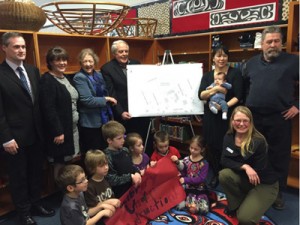 MON FEBRUARY 29 ~ SOOKE. The District of Sooke has purchased a 5.26 acre parcel of land in the community core, as part of provisioning for a new Sooke Library. The land purchase was announced at Sooke Elementary School this afternoon. “The District of Sooke and the Vancouver Island Regional Library (VIRL) can now take the next steps toward building a new library for Sooke,” said Acting Mayor Kerrie Reay. Read more on the Sooke area news page
MON FEBRUARY 29 ~ SOOKE. The District of Sooke has purchased a 5.26 acre parcel of land in the community core, as part of provisioning for a new Sooke Library. The land purchase was announced at Sooke Elementary School this afternoon. “The District of Sooke and the Vancouver Island Regional Library (VIRL) can now take the next steps toward building a new library for Sooke,” said Acting Mayor Kerrie Reay. Read more on the Sooke area news page

MON FEBRUARY 29 ~ WORLD. This is a leap year, and Monday is February 29. Very cute graphic posted on Google, with the February 29 bunny hopping into the middle between February 28 and March 1.
 SUN FEBRUARY 28 ~ LOS ANGELES . The power of investigative journalism took Best Picture (Spotlight) and standing up for human rights took Best Documentary Short Subject (A Girl in the River: The Price of Forgiveness) at the 88th Academy Awards tonight.In accepting his win as Best Actor in The Revenant, made largely in Alberta (but for which the production team had to travel to the south pole to find snow last summer, the hottest year on record), Leonardo DiCaprio championed climate change, the well-being of indigenous peoples, and having a livable planet going forward. “Do not take this planet for granted, I do not take tonight for granted,” he concluded to a robust round of applause. This was DiCaprio’s first Oscar win, after six nominations, having first burst onto the global consciousness of film-goers with his performance in Titanic back in 1997.In her acceptance speech for A Girl in the River: The Price of Forgiveness as Best Documentary Short Subject, director Sharmeen Obaid-Chinoy said in her acceptance speech that the president of Pakistan has said he will bring in new legislation about honour killings. She praised the power of film for achieving that goal.
SUN FEBRUARY 28 ~ LOS ANGELES . The power of investigative journalism took Best Picture (Spotlight) and standing up for human rights took Best Documentary Short Subject (A Girl in the River: The Price of Forgiveness) at the 88th Academy Awards tonight.In accepting his win as Best Actor in The Revenant, made largely in Alberta (but for which the production team had to travel to the south pole to find snow last summer, the hottest year on record), Leonardo DiCaprio championed climate change, the well-being of indigenous peoples, and having a livable planet going forward. “Do not take this planet for granted, I do not take tonight for granted,” he concluded to a robust round of applause. This was DiCaprio’s first Oscar win, after six nominations, having first burst onto the global consciousness of film-goers with his performance in Titanic back in 1997.In her acceptance speech for A Girl in the River: The Price of Forgiveness as Best Documentary Short Subject, director Sharmeen Obaid-Chinoy said in her acceptance speech that the president of Pakistan has said he will bring in new legislation about honour killings. She praised the power of film for achieving that goal.
As was widely expected, comedic host Chris Rock tackled the lack of racial diversity in this year’s Oscar nominations, not just once or twice but throughout the 3.5-hour live show. President of The Academy essential said they would do better in future years.
 SUN FEBRUARY 28 ~ LOS ANGELES (pre-show article). Tonight, the 88th Academy Awards will be hosted by Chris Rock who is expected to tackle the fact that no black actors were included in the nominations for acting awards this year (and for the second year in a row). Red carpet televising starts at 3pm Pacific on CTV.
SUN FEBRUARY 28 ~ LOS ANGELES (pre-show article). Tonight, the 88th Academy Awards will be hosted by Chris Rock who is expected to tackle the fact that no black actors were included in the nominations for acting awards this year (and for the second year in a row). Red carpet televising starts at 3pm Pacific on CTV.
 The leading film in terms of number of nominations is “The Revenant” with 12 nominations, including best picture and acting nominations for both Leonardo DiCaprio in the lead acting category and Tom Hardy for supporting actor. A large chunk of “The Revenant” was filmed in Alberta. “Mad Max: Fury Road,” also a best picture nominee, follows with 10 nominations.
The leading film in terms of number of nominations is “The Revenant” with 12 nominations, including best picture and acting nominations for both Leonardo DiCaprio in the lead acting category and Tom Hardy for supporting actor. A large chunk of “The Revenant” was filmed in Alberta. “Mad Max: Fury Road,” also a best picture nominee, follows with 10 nominations.
The other films nominated for best picture are “The Big Short,” “Bridge of Spies,” “Brooklyn,” “The Martian,” “Room” and “Spotlight.” A complete list of nominations is online.
 Nominated for an Academy Award for Best Documentary Short Subject is “A Girl in the River: The Price of Forgiveness”. The director Sharmeen Obaid-Chinoy says: “To me honor killing is premeditated, cold-blooded murder but the justification given by men when they kill a woman is that she did something without permission, or that is out of bounds of what society deems is okay for a woman,” Obaid-Chinoy has a question that she wants her government and her society to answer: “Why does honor rest with women, why can’t it rest with men?” Obaid-Chinoy painstakingly followed a case of attempted murder that society condoned in her native Pakistan. “A Girl in the River: The Price of Forgiveness” is a brutally honest look at the practice of so-called honor killings. In Pakistan alone, rights groups estimate 1,000 women lose their lives to that particular brand of murder each year.
Nominated for an Academy Award for Best Documentary Short Subject is “A Girl in the River: The Price of Forgiveness”. The director Sharmeen Obaid-Chinoy says: “To me honor killing is premeditated, cold-blooded murder but the justification given by men when they kill a woman is that she did something without permission, or that is out of bounds of what society deems is okay for a woman,” Obaid-Chinoy has a question that she wants her government and her society to answer: “Why does honor rest with women, why can’t it rest with men?” Obaid-Chinoy painstakingly followed a case of attempted murder that society condoned in her native Pakistan. “A Girl in the River: The Price of Forgiveness” is a brutally honest look at the practice of so-called honor killings. In Pakistan alone, rights groups estimate 1,000 women lose their lives to that particular brand of murder each year.
 SUN FEBRUARY 28 ~ VICTORIA. On Monday afternoon, February 29, BC Minister of State for Emergency Preparedness Naomi Yamamoto, together with representatives from Ocean Networks Canada and the BC Earthquake Alliance will be making a funding announcement about seismic preparedness in BC.
SUN FEBRUARY 28 ~ VICTORIA. On Monday afternoon, February 29, BC Minister of State for Emergency Preparedness Naomi Yamamoto, together with representatives from Ocean Networks Canada and the BC Earthquake Alliance will be making a funding announcement about seismic preparedness in BC.
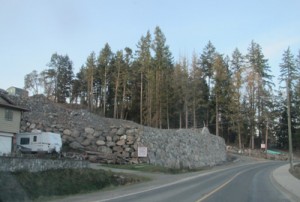 THURS FEBRUARY 25 ~ COLWOOD: Regulating walls & dust. The City of Colwood held a 3-hour public open house this evening about issues with retaining walls in local property developments, and a proposed bylaw to regulate and maintain these walls that are popular if not necessary on sloped or hilltop properties. There were also several complaints last summer in dry hot weather about dust produced from excavating and building projects in the municipal area, which have led to a proposed dust control bylaw.“The City needs to adopt a basic set of standards for retaining walls to keep pace with increasing development in Colwood, and to prevent negative impacts to the natural landscape and surrounding areas,” it was stated among the displayed materials at the open house that drew about 50 members of the public, including developers and builders. “The City hopes to provides clear direction for developers and builders.”
THURS FEBRUARY 25 ~ COLWOOD: Regulating walls & dust. The City of Colwood held a 3-hour public open house this evening about issues with retaining walls in local property developments, and a proposed bylaw to regulate and maintain these walls that are popular if not necessary on sloped or hilltop properties. There were also several complaints last summer in dry hot weather about dust produced from excavating and building projects in the municipal area, which have led to a proposed dust control bylaw.“The City needs to adopt a basic set of standards for retaining walls to keep pace with increasing development in Colwood, and to prevent negative impacts to the natural landscape and surrounding areas,” it was stated among the displayed materials at the open house that drew about 50 members of the public, including developers and builders. “The City hopes to provides clear direction for developers and builders.”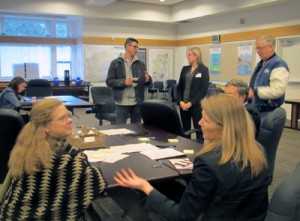 The key technical aspect of the proposal is that “no retaining wall or fence on a retaining wall may exceed 4 ft (1.2 meters) in height, or if higher than 4 ft must be terraced in 4-ft sections”.Information and discussion boards from the open house about Retaining Walls & Dust Control are online, where it states that the upward angle cannot be steeper than 45 degrees.
The key technical aspect of the proposal is that “no retaining wall or fence on a retaining wall may exceed 4 ft (1.2 meters) in height, or if higher than 4 ft must be terraced in 4-ft sections”.Information and discussion boards from the open house about Retaining Walls & Dust Control are online, where it states that the upward angle cannot be steeper than 45 degrees.
At least one developer who was present this evening said developers will use up the land that they have — in other words, they won’t stop building. But he did say that the new bylaw would challenge the profitability of developments, as more land would be used for the retaining walls which would likely reduce the number of housing units that could be constructed.
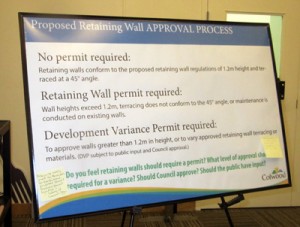 Some public input in recent months has been about the aesthetics of the walls — some of them just aren’t visually attractive. Safety was the other concern — if stacked up rocks aren’t assembled properly, there could be issues. Colwood staff said that all existing retaining walls have been built to geo-technical standards, but that the bylaws would ensure greater safety and likely improved aesthetics.
Some public input in recent months has been about the aesthetics of the walls — some of them just aren’t visually attractive. Safety was the other concern — if stacked up rocks aren’t assembled properly, there could be issues. Colwood staff said that all existing retaining walls have been built to geo-technical standards, but that the bylaws would ensure greater safety and likely improved aesthetics.
If the bylaw goes smoothly through the process, it could be passed by Colwood Council by sometime in May. Tonight’s open house was attended by planning and communications staff, a planning consultant, and at least two Colwood councillors – Cynthia Day and Rob Martin.
Story & Photos Copyright 2016 West Shore Voice News.
 THURS FEBRUARY 25 ~ VICTORIA. An open house to present and discuss two refined options for the new McKenzie Interchange was hosted yesterday by the BC Ministry of Transportation & Infrastructure (MOTI) and BC Transit. Over 330 people attended the 4-hour community consultation at a community hall in Saanich. This Phase 2 presentation was based on further technical work and feedback received to date from the public and stakeholders. Public input could be made through conversation, or in writing, or using wireless computers at the ready.Notably, the Burnside/McKenzie intersection was brought into focus, which was not part of the first proposed set of plans; an additional southbound lane would be part of the final plan, as well as 2-lane flow from McKenzie onto the Trans Canada Highway (Hwy 1). And based on strong public feedback about ‘no tunnels’, all pedestrian and cycling corridors will be overhead, and the grade for those access ways will be no greater than 4 degrees. The highway interchange itself (whether cloverleaf design or diamond shape) will go over top of Hwy 1 at McKenzie & Admirals.
THURS FEBRUARY 25 ~ VICTORIA. An open house to present and discuss two refined options for the new McKenzie Interchange was hosted yesterday by the BC Ministry of Transportation & Infrastructure (MOTI) and BC Transit. Over 330 people attended the 4-hour community consultation at a community hall in Saanich. This Phase 2 presentation was based on further technical work and feedback received to date from the public and stakeholders. Public input could be made through conversation, or in writing, or using wireless computers at the ready.Notably, the Burnside/McKenzie intersection was brought into focus, which was not part of the first proposed set of plans; an additional southbound lane would be part of the final plan, as well as 2-lane flow from McKenzie onto the Trans Canada Highway (Hwy 1). And based on strong public feedback about ‘no tunnels’, all pedestrian and cycling corridors will be overhead, and the grade for those access ways will be no greater than 4 degrees. The highway interchange itself (whether cloverleaf design or diamond shape) will go over top of Hwy 1 at McKenzie & Admirals. This $85 million venture is in large part to ease the so-called ‘Colwood Crawl’ — i.e. traffic congestion to and from the downtown core (and the high-employment areas in Saanich at UVic and Camosun), for travelers and commuters living in the west shore and beyond. This week an additional northbound bus lane on Douglas Street (approaching Hwy 1) was announced, to further support the movement of road traffic from downtown to the west shore, particularly for the head-home commute.
This $85 million venture is in large part to ease the so-called ‘Colwood Crawl’ — i.e. traffic congestion to and from the downtown core (and the high-employment areas in Saanich at UVic and Camosun), for travelers and commuters living in the west shore and beyond. This week an additional northbound bus lane on Douglas Street (approaching Hwy 1) was announced, to further support the movement of road traffic from downtown to the west shore, particularly for the head-home commute.
Construction on various aspects of the project will begin later in 2016. One portion that could be done early in the project is to relocate a CRD water main that runs down the middle of Hwy 1, said MOTI District Manager Janelle Erwin. Another early aspect of the project could be making the Galloping Goose a safer right-of-way for cyclists, Erwin told media at the February 24 open house. Overall construction is expected to take about two years.
 The project is expected to remain within the budget of just over $85 million, said MOTI officials yesterday. The BC government is footing $53 million of that cost, with the federal government contributing $32.6 million.
The project is expected to remain within the budget of just over $85 million, said MOTI officials yesterday. The BC government is footing $53 million of that cost, with the federal government contributing $32.6 million.
An associated project called the Westshore Parkway Extension was not discussed in detail at yesterday’s open house. That stretch of road will better connect the Langford area to Hwy 14 (Sooke Road), improving access to Sooke. Construction is expected to get underway later this year as well. The Westshore Parkway Extension budget is $22.5 million, of which 3-way contributions include federal ($7.45 million), provincial ($7.45 million), and City of Langford ($7.6 million).
Anyone unable to attend yesterday’s open house can still provide input on the BC Ministry of Transportation McKenzie Interchange website. | Photos Copyright 2016 West Shore Voice News ~ request publication rights
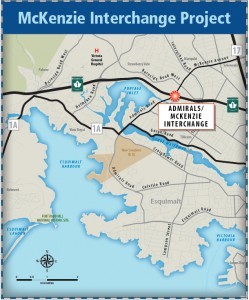 WED FEBRUARY 24 ~ VICTORIA. Phase 2 Public Input on McKenzie Interchange today. Based on further technical work and feedback received to date from the public and stakeholders, the BC Ministry of Transportation & Infrastructure (MOTI) will present two refined options for the new McKenzie Interchange at today’s public open house.
WED FEBRUARY 24 ~ VICTORIA. Phase 2 Public Input on McKenzie Interchange today. Based on further technical work and feedback received to date from the public and stakeholders, the BC Ministry of Transportation & Infrastructure (MOTI) will present two refined options for the new McKenzie Interchange at today’s public open house.
“We’ve received considerable input from the public about traffic flow at the interchange, congestion at the McKenzie/Burnside intersection, park impacts, and accommodation of transit, cycling and pedestrians,” said MOTI Minister Todd Stone. “The public and stakeholder input has been invaluable and has helped us fine-tune the two remaining options, which will be made available for further public comment today.” Read More.
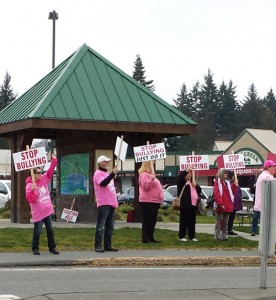 TUES FEBRUARY 23 ~ VICTORIA. Pink Shirt Day is coming up on Wednesday, February 24 in the Greater Victoria area. The first Pink Shirt Day was in 2007 when two male students in Nova Scotia bought and distributed 50 pink shirts to be worn in support of a 9th Grade male student who had been bullied for wearing a pink shirt on the first day of school. Since then the day to speak up against bullying (including cyber bullying), has caught on across Canada and indeed now in 25 countries around the world after 2012 when the United Nations declared May 4 as the official anti-bullying day. In BC the last few years it has been recognized in the third-to-last week of February, in part playing on the pink theme from Valentine’s in February. Pink Shirt Day in Sooke is Wed Feb 24 (3 to 5 pm in town center).
TUES FEBRUARY 23 ~ VICTORIA. Pink Shirt Day is coming up on Wednesday, February 24 in the Greater Victoria area. The first Pink Shirt Day was in 2007 when two male students in Nova Scotia bought and distributed 50 pink shirts to be worn in support of a 9th Grade male student who had been bullied for wearing a pink shirt on the first day of school. Since then the day to speak up against bullying (including cyber bullying), has caught on across Canada and indeed now in 25 countries around the world after 2012 when the United Nations declared May 4 as the official anti-bullying day. In BC the last few years it has been recognized in the third-to-last week of February, in part playing on the pink theme from Valentine’s in February. Pink Shirt Day in Sooke is Wed Feb 24 (3 to 5 pm in town center).
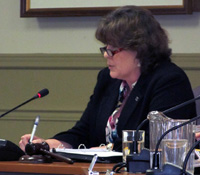 TUES FEBRUARY 23 ~ SOOKE: New rules: no random public input. The District of Sooke has seen fit — under Acting Mayor Kerrie Reay — to eliminate the opportunity for spontaneous public input on issues of the day. Until last night, where it said ‘Public Input’ under the Current Issues section of the agenda, members of the public could approach the podium and provide comments on matters of importance to the community. It got backed up by legal opinion.
TUES FEBRUARY 23 ~ SOOKE: New rules: no random public input. The District of Sooke has seen fit — under Acting Mayor Kerrie Reay — to eliminate the opportunity for spontaneous public input on issues of the day. Until last night, where it said ‘Public Input’ under the Current Issues section of the agenda, members of the public could approach the podium and provide comments on matters of importance to the community. It got backed up by legal opinion.
Why this matters as front page news, is that in small-town Sooke it indicates an increasing trend to structured public input at the risk of minimizing the openness of government to its taxpayers. This seems counter to the trend at the federal level where engagement with the public appears to be flourishing. Read more.
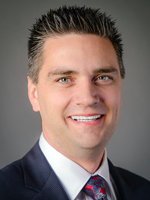
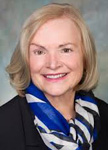 “During rush hour, 40% of people are moving along the corridor on transit, but our buses are actually only 3% of the traffic on the road,” said Susan Brice, chair of the Victoria Regional Transit Commission and Saanich councillor. “It not only makes sense to give buses a priority – it’s the right thing to do. This project will result in shorter travel times and improved reliability, and help encourage transit ridership in the Victoria region.”During the first round of consultations on the McKenzie interchange project (in the west shore area, beyond downtown) in Fall 2015, 92% of people said that accommodating transit was important. This new lane is a key step to make the trip from downtown to McKenzie more convenient for transit users along the corridor, to help reduce the so-called ‘Colwood Crawl’. “MOTI is working on a future plan to connect this new bus lane with the transit improvements that are being constructed as part of the McKenzie Interchange project,” said a BC Government news release today.
“During rush hour, 40% of people are moving along the corridor on transit, but our buses are actually only 3% of the traffic on the road,” said Susan Brice, chair of the Victoria Regional Transit Commission and Saanich councillor. “It not only makes sense to give buses a priority – it’s the right thing to do. This project will result in shorter travel times and improved reliability, and help encourage transit ridership in the Victoria region.”During the first round of consultations on the McKenzie interchange project (in the west shore area, beyond downtown) in Fall 2015, 92% of people said that accommodating transit was important. This new lane is a key step to make the trip from downtown to McKenzie more convenient for transit users along the corridor, to help reduce the so-called ‘Colwood Crawl’. “MOTI is working on a future plan to connect this new bus lane with the transit improvements that are being constructed as part of the McKenzie Interchange project,” said a BC Government news release today.
MON FEBRUARY 22 ~ OTTAWA: The federal budget will be released on Tuesday, March 22. “The new government will take action to ensure that economic growth is shared equally with the middle class and those working so hard to join it. In challenging economic times, the government has an important role to play. Now—more than ever—is the time to make investments to build a stronger middle class and foster sustainable, clean growth.” Submissions, comments and ideas on how best to grow the economy, strengthen the middle class, and help the most vulnerable will be accepted until midnight on February 23, 2016. Full government release here: http://www.fin.gc.ca/n16/16-025-eng.asp
 SAT FEBRUARY 20 ~ SOOKE: Mobile breast cancer detection service to visit Sooke March 21 to 24. Shoppers Drug Mart in Sooke is hosting a BC ‘mammovan’ in the Evergreen Shopping Centre mall, March 21 to 24. Gearing up for that, the store is making a big splash with a ‘Cosmetics Gala’ on Saturday, March 5 where for $10 women can get a makeover and sign up for a breast cancer screening appointment. See page 1 in the February 19, 2016 edition of West Shore Voice News.
SAT FEBRUARY 20 ~ SOOKE: Mobile breast cancer detection service to visit Sooke March 21 to 24. Shoppers Drug Mart in Sooke is hosting a BC ‘mammovan’ in the Evergreen Shopping Centre mall, March 21 to 24. Gearing up for that, the store is making a big splash with a ‘Cosmetics Gala’ on Saturday, March 5 where for $10 women can get a makeover and sign up for a breast cancer screening appointment. See page 1 in the February 19, 2016 edition of West Shore Voice News.
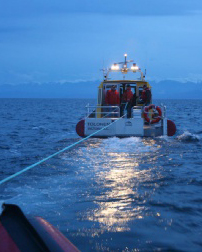 SAT FEBRUARY 20 ~ BC GOVERNMENT: Province provides over $5.7M in gaming grants for public safety. BC non-profit organizations dedicated to public safety received over $5.7 million in the most recent round of community gaming grants funded by the Government of British Columbia, said Community, Sport and Cultural Development Minister Peter Fassbender today. “Public safety community gaming grants help support the important work of non-profit organizations throughout the province that provide a range of services and educational programs to protect the safety of British Columbians in their local communities,” says the BC Government. Eligible organizations include: volunteer fire departments, search and rescue groups, crime stoppers associations, marine rescue societies and community justice centres. In Sooke, the Canadian Coast Guard Auxiliary (Pacific) Inc has received $225,000 from the BC Government in the form of a gaming grant. The JdF Regional ParkWatch Society received $8,000. The Juan de Fuca Marine Rescue Society has received $60,000. The Otter Point Volunteer Firefighters Association has received $13,000. Also for on-water rescue, the Oak Bay Sea Rescue Society received $57,200 and the Victoria Marine Rescue Society received $100,000. The Victoria Restorative Justice Society was granted $46,000. For a full list of public safety grant recipients: http://ow.ly/YdPzd
SAT FEBRUARY 20 ~ BC GOVERNMENT: Province provides over $5.7M in gaming grants for public safety. BC non-profit organizations dedicated to public safety received over $5.7 million in the most recent round of community gaming grants funded by the Government of British Columbia, said Community, Sport and Cultural Development Minister Peter Fassbender today. “Public safety community gaming grants help support the important work of non-profit organizations throughout the province that provide a range of services and educational programs to protect the safety of British Columbians in their local communities,” says the BC Government. Eligible organizations include: volunteer fire departments, search and rescue groups, crime stoppers associations, marine rescue societies and community justice centres. In Sooke, the Canadian Coast Guard Auxiliary (Pacific) Inc has received $225,000 from the BC Government in the form of a gaming grant. The JdF Regional ParkWatch Society received $8,000. The Juan de Fuca Marine Rescue Society has received $60,000. The Otter Point Volunteer Firefighters Association has received $13,000. Also for on-water rescue, the Oak Bay Sea Rescue Society received $57,200 and the Victoria Marine Rescue Society received $100,000. The Victoria Restorative Justice Society was granted $46,000. For a full list of public safety grant recipients: http://ow.ly/YdPzd
 THURS FEBRUARY 18 ~ BC GOVERNMENT: Apparently only 39% of seniors are aware of premium assistance for their Medical Service Plan payments. BC Health Minister Terry Lake and BC seniors advocate Isobel Mackenzie addressed media this afternoon to highlight MSP supports, at a seniors home in James Bay, in downtown Victoria. Premium assistance is a fine thing, but doesn’t take into account the punitive fee structure that sees any family earning over $30,000 paying the same amount, regardless of how high their income is. A recent survey presented in the BC Legislature called for revision of the MSP system so that premiums are based on a sliding scale (percentage of income), and eliminating the need to file forms. MSP Collections goes so far as to put a lien on a person’s home, if fees are not paid. This does not happen in other jurisdictions in Canada. See MSP coverage in the Jan 22, 2016 Edition of West Shore Voice News (pages 1 & 3) and the Feb 12, 2016 edition of West Shore Voice News (page 1). | More big-picture news
THURS FEBRUARY 18 ~ BC GOVERNMENT: Apparently only 39% of seniors are aware of premium assistance for their Medical Service Plan payments. BC Health Minister Terry Lake and BC seniors advocate Isobel Mackenzie addressed media this afternoon to highlight MSP supports, at a seniors home in James Bay, in downtown Victoria. Premium assistance is a fine thing, but doesn’t take into account the punitive fee structure that sees any family earning over $30,000 paying the same amount, regardless of how high their income is. A recent survey presented in the BC Legislature called for revision of the MSP system so that premiums are based on a sliding scale (percentage of income), and eliminating the need to file forms. MSP Collections goes so far as to put a lien on a person’s home, if fees are not paid. This does not happen in other jurisdictions in Canada. See MSP coverage in the Jan 22, 2016 Edition of West Shore Voice News (pages 1 & 3) and the Feb 12, 2016 edition of West Shore Voice News (page 1). | More big-picture news
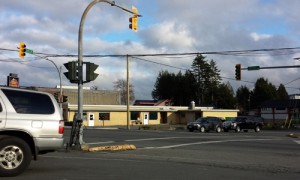
WED FEBRUARY 17 ~ SOOKE BUSINESS: Town centre businesses still operating during building overhaul. The x-ray clinic in Sooke is still open during renovation of an old building at the corner of Sooke Road and Murray Road in the heart of Sooke. Also, a new breakfast-style restaurant called “Papa’s Cook Shop” has opened where Cathy’s Corner Cafe used to be. “Weather permitting, there will be exterior facelift happening this week!,” says building management.

WED FEBRUARY 17 ~ RESOURCE INDUSTRY: “It’s time for a new conversation about building pipelines in this country – a conversation about how Canada can get full value for its oil production while at the same time addressing environmental concerns, including climate change.” Op-Ed by Murray Edwards, Executive Chairman, Canadian Natural Resources Limited and Brian Ferguson, President & CEO, Cenovus Energy in the Feb 19th edition of West Shore Voice News.


